 Eikev, Ekev, Ekeb, Aikev, or Eqeb ( —
Eikev, Ekev, Ekeb, Aikev, or Eqeb ( — Readings
In traditional Sabbath Torah reading, the parashah is divided into seven readings, or , '' aliyot''. In the (''Random House Webster's Unabridged Dictionary''. Hebrew: ''Tān ...
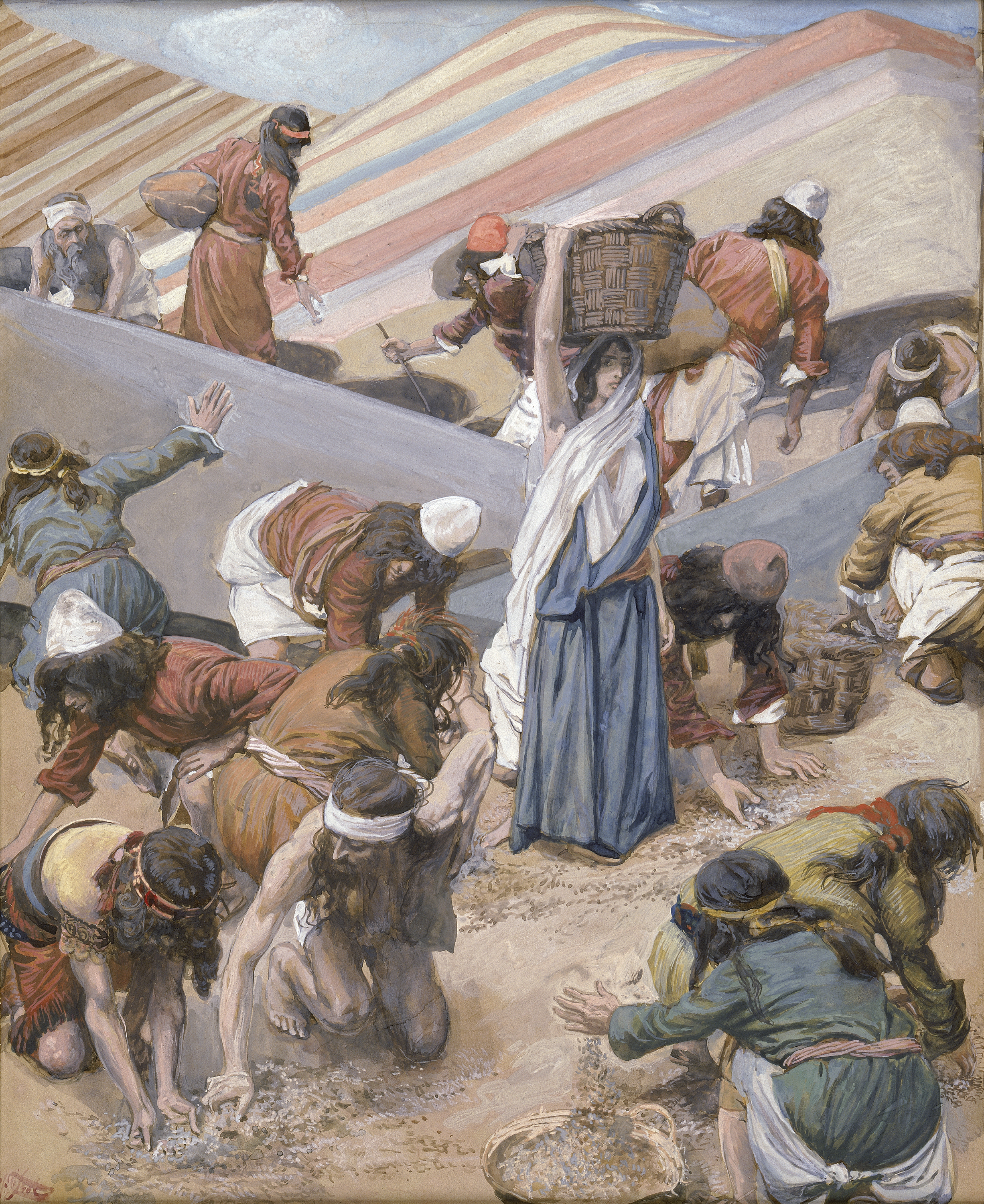
First reading — Deuteronomy 7:12–8:10
In the first reading (, ''aliyah''),Second reading — Deuteronomy 8:11–9:3
In the second reading (, ''aliyah''), Moses warned the Israelites not to forget God, not to violate God's commandments, and not to grow haughty and believe that their own power had won their wealth, but to remember that God gave them the power to prosper. The second open portion (, ''petuchah'') ends here. Moses warned that if they forgot God and followed other gods, then they would certainly perish like the nations that God was going to displace from the land. The third open portion (, ''petuchah'') ends here with the end of chapter .See, e.g., Menachem Davis, editor, ''Schottenstein Edition Interlinear Chumash: Devarim/Deuteronomy'', page 62. Moses warned the Israelites that they were to dispossess nations greater than they, but God would go before them as a devouring fire to drive out the land's inhabitants. The second reading (, ''aliyah'') ends here.

Third reading — Deuteronomy 9:4–29
In the third reading (, ''aliyah''), Moses warned the Israelites not to believe that God had enabled them to possess the land because of their own
Fourth reading — Deuteronomy 10:1–11
In the fourth reading (, ''aliyah''), God told Moses to carve out two tablets of stone like the first, come up the mountain, and make an
Fifth reading — Deuteronomy 10:12–11:9
In the fifth reading (, ''aliyah''), Moses exhorted the Israelites to revere God, to walk only in God's paths, to love God, to serve God with all their heart and soul, and to keep God's commandments. Moses noted that although heaven and earth belong to God, God was drawn to love their fathers, so that God chose the Israelites from among all peoples. Moses described God as supreme, great, mighty, and awesome, showing no favor and taking no bribe, but upholding the cause of the fatherless and theSixth reading — Deuteronomy 11:10–21
 In the sixth reading (, ''aliyah''), Moses extolled the promised land as a land of hills and valleys that soaks up its water from the
In the sixth reading (, ''aliyah''), Moses extolled the promised land as a land of hills and valleys that soaks up its water from the Seventh reading — Deuteronomy 11:22–25
In the seventh reading (, ''aliyah''), which is also the concludingReadings according to the triennial cycle
Jews who read the Torah according to theIn ancient parallels
The parashah has parallels or is discussed in these ancient sources:Deuteronomy chapter 9
an28
refer to the "children of Anak" (, ''yelidei ha-anak''), refers to the "sons of Anak" (, ''benei anak''), and , , , and refer to the "Anakim" (). John A. Wilson suggested that the Anakim may be related to the ''Iy-‘anaq'' geographic region named in Middle Kingdom Egyptian (19th to 18th century BCE) pottery bowls that had been inscribed with the names of enemies and then shattered as a kind of curse.
Deuteronomy chapter 11
an17
an
, an
and
an
an
describe the Land of Israel as a land flowing “with milk and honey.” Similarly, the Middle Egyptian (early second millennium BCE) tale of Sinuhe Palestine described the Land of Israel or, as the Egyptian tale called it, the land of Yaa: "It was a good land called Yaa. Figs were in it and grapes. It had more wine than water. Abundant was its honey, plentiful its oil. All kind of fruit were on its trees. Barley was there and emmer, and no end of cattle of all kinds."
In translation
Deuteronomy chapter 7
''Eikev'' in is given a conditional meaning in someIn inner-Biblical interpretation
The parashah has parallels or is discussed in these Biblical sources:Deuteronomy chapter 7
The gradual progression into theDeuteronomy chapter 9
uses the same words 'Shema, Yisrael' as the more well-known exhortation in . Commentators suggest that the same words are used because 'a fresh portion of the exhortation begins here', or because this was 'a new discourse, delivered at some distance of time from the former, probably on the next sabbath day'.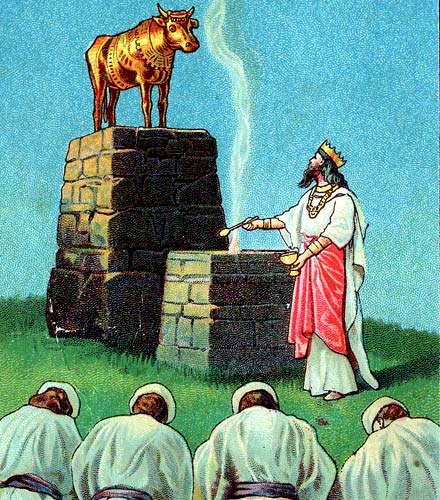

Deuteronomy chapter 10
assigns the Levites the duties of bearing the Ark of the Covenant, to stand before God to minister to God, and to bless in God's name. Elsewhere in the Hebrew Bible, reports that Levites taught the law. reports that they served as judges. reports that of 38,000 Levite men age 30 and up, 24,000 were in charge of the work of the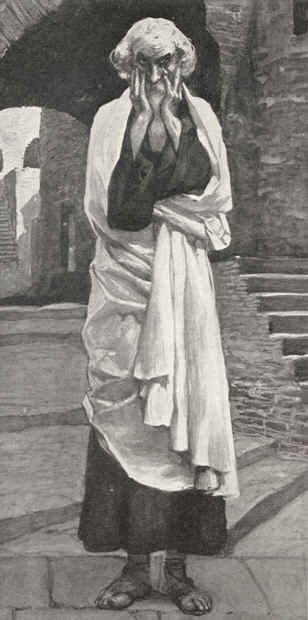 The question of , “What does the Lord your God require of you?” parallels , “It has been told you, O man, what is good, and what the Lord does require of you.”
The exhortation of and to “walk in God’s ways” reflects a recurring theme also present in ; ; ; ; ; and .
The metaphor of an uncircumcised heart in also appears in , and , and .
admonishes the Israelites not to wrong the stranger, “for you were strangers in the land of Egypt.” (See also ; ; ; ; an
The question of , “What does the Lord your God require of you?” parallels , “It has been told you, O man, what is good, and what the Lord does require of you.”
The exhortation of and to “walk in God’s ways” reflects a recurring theme also present in ; ; ; ; ; and .
The metaphor of an uncircumcised heart in also appears in , and , and .
admonishes the Israelites not to wrong the stranger, “for you were strangers in the land of Egypt.” (See also ; ; ; ; an17–22
and .) Similarly, in , the 8th century BCE
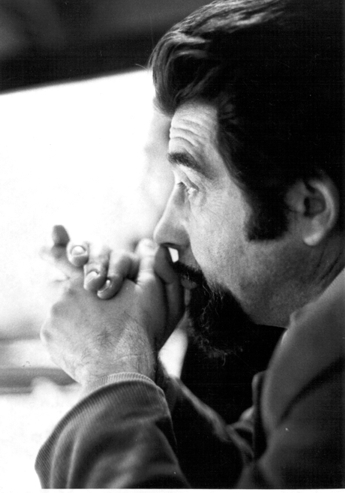 reports that God “executes justice for the fatherless and widow.” God's justice is a recurring theme in the Hebrew Bible (, ''Tanakh''). In , Abraham asked, “Shall not the
reports that God “executes justice for the fatherless and widow.” God's justice is a recurring theme in the Hebrew Bible (, ''Tanakh''). In , Abraham asked, “Shall not the  In , Moses reported that God had made the Israelites as numerous as the stars. In , God promised that Abraham's descendants would be as numerous as the stars of heaven. Similarly, in , God promised that Abraham's descendants would be as numerous as the stars of heaven and the sands on the seashore. In , God reminded Isaac that God had promised Abraham that God would make his heirs as numerous as the stars. In , Jacob reminded God that God had promised that Jacob's descendants would be as numerous as the sands. In , Moses reminded God that God had promised to make the Patriarch's descendants as numerous as the stars. In , Moses reported that God had multiplied the Israelites until they were then as numerous as the stars. And foretold that the Israelites would be reduced in number after having been as numerous as the stars.
In , Moses reported that God had made the Israelites as numerous as the stars. In , God promised that Abraham's descendants would be as numerous as the stars of heaven. Similarly, in , God promised that Abraham's descendants would be as numerous as the stars of heaven and the sands on the seashore. In , God reminded Isaac that God had promised Abraham that God would make his heirs as numerous as the stars. In , Jacob reminded God that God had promised that Jacob's descendants would be as numerous as the sands. In , Moses reminded God that God had promised to make the Patriarch's descendants as numerous as the stars. In , Moses reported that God had multiplied the Israelites until they were then as numerous as the stars. And foretold that the Israelites would be reduced in number after having been as numerous as the stars.
In early nonrabbinic interpretation
The parashah has parallels or is discussed in these early nonrabbinic sources:
Deuteronomy chapter 8
In classical Rabbinic interpretation
The parashah is discussed in theseDeuteronomy chapter 7
A''Random House Webster's Unabridged Dictionary''. he, מִדְרָשׁ; ...
 Another Midrash played on two possible meanings of the second word of , , ''eikev'', "as a consequence" and "the end." Israel asked God when God would grant reward for the observance of commandments. God replied that when people observe commandments, they enjoy some fruits now, but God will give them their full reward in the ''end'', after death.
Another Midrash played on two possible meanings of the second word of , , ''eikev'', "as a consequence" and "heel." The Midrash interpreted the words "upon Edom I cast my shoe" in and to mean that God says that when Israel repents, then God will tread with God's heel, so to speak, on Israel's enemy Edom. And the Midrash taught, in the words of , that "it shall come to pass, because (''eikev'') you hearken."
Rabbi Samuel bar Nahmani interpreted the words "that the Lord your God shall keep for you" in , teaching that all the good that Israel enjoys in this world results from the blessings with which
Another Midrash played on two possible meanings of the second word of , , ''eikev'', "as a consequence" and "the end." Israel asked God when God would grant reward for the observance of commandments. God replied that when people observe commandments, they enjoy some fruits now, but God will give them their full reward in the ''end'', after death.
Another Midrash played on two possible meanings of the second word of , , ''eikev'', "as a consequence" and "heel." The Midrash interpreted the words "upon Edom I cast my shoe" in and to mean that God says that when Israel repents, then God will tread with God's heel, so to speak, on Israel's enemy Edom. And the Midrash taught, in the words of , that "it shall come to pass, because (''eikev'') you hearken."
Rabbi Samuel bar Nahmani interpreted the words "that the Lord your God shall keep for you" in , teaching that all the good that Israel enjoys in this world results from the blessings with which  In , God promised to "send the hornet () before you, which shall drive out the
In , God promised to "send the hornet () before you, which shall drive out the Deuteronomy chapter 8
The Mishnah taught that first fruits were brought only from the The
The Deuteronomy chapter 9
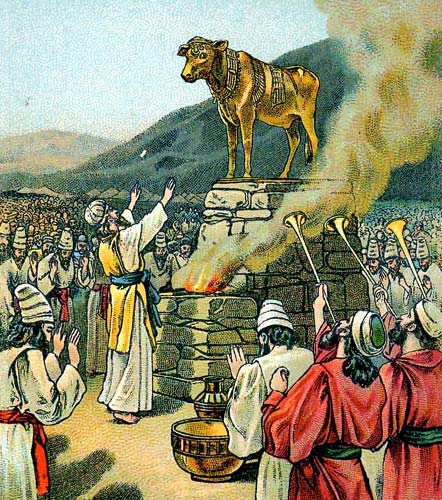 Tanhuma bar Abba, Rabbi Tanhuma taught that Moses prostrated himself before the Israelites and said to them the words of , "''You'' are to pass over the Jordan," noting that ''he'' would not. Moses gave the Israelites the opportunity to pray for him, but they did not. The Midrash compared this to a king who had many children by a noble lady. The lady was undutiful to him and he decided to divorce her. He told her that he was going to marry another wife. She asked who, and he told her. She summoned her children and told them that their father intended to divorce her and marry the other woman, and asked the children if they could bear being subjected to her. She thought that perhaps they would understand what she meant and would intercede with their father on her behalf, but they did not understand. As they did not understand, she commanded them only for their own sake to be mindful of the honor of their father. So it was with Moses. When God told him in , "You shall not go over this Jordan," Moses spoke to the Israelites and stressed the words in , "''You'' are to pass over."
A Baraita taught that because of God's displeasure with the Israelites, the north wind did not blow on them in any of the 40 years during which they wandered in the wilderness. Rashi attributed God's displeasure to the Golden Calf, although the Tosafot attributed it to the incident of the spies in .
Tanhuma bar Abba, Rabbi Tanhuma taught that Moses prostrated himself before the Israelites and said to them the words of , "''You'' are to pass over the Jordan," noting that ''he'' would not. Moses gave the Israelites the opportunity to pray for him, but they did not. The Midrash compared this to a king who had many children by a noble lady. The lady was undutiful to him and he decided to divorce her. He told her that he was going to marry another wife. She asked who, and he told her. She summoned her children and told them that their father intended to divorce her and marry the other woman, and asked the children if they could bear being subjected to her. She thought that perhaps they would understand what she meant and would intercede with their father on her behalf, but they did not understand. As they did not understand, she commanded them only for their own sake to be mindful of the honor of their father. So it was with Moses. When God told him in , "You shall not go over this Jordan," Moses spoke to the Israelites and stressed the words in , "''You'' are to pass over."
A Baraita taught that because of God's displeasure with the Israelites, the north wind did not blow on them in any of the 40 years during which they wandered in the wilderness. Rashi attributed God's displeasure to the Golden Calf, although the Tosafot attributed it to the incident of the spies in .
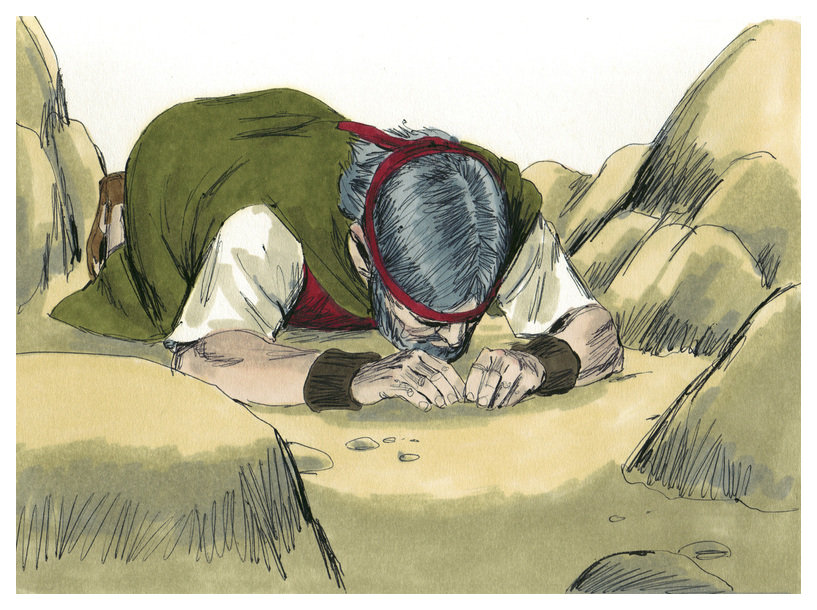 Rabbi Simeon ben Yohai taught that because the generation of the Flood transgressed the Torah that God gave humanity after Moses had stayed on the mountain for 40 days and 40 nights (as reported in and and
Rabbi Simeon ben Yohai taught that because the generation of the Flood transgressed the Torah that God gave humanity after Moses had stayed on the mountain for 40 days and 40 nights (as reported in and and 18
and ), God announced in that God would "cause it to rain upon the earth 40 days and 40 nights." Noting that in , Moses said, "And I ''sat'' (, ''va-eisheiv'') on the mount," and in , Moses said, "And I ''stood'' in the mount, Abba Arika, Rav taught that Moses stood when he learned (from God) and sat while he reviewed what he had learned (by himself). Rabbi Hanina taught that Moses neither sat nor stood, but bowed. Rabbi Johanan taught that "sat" (, ''va-eisheiv'') here meant only "stayed," as it does in , which says, "And you ''stayed'' (, ''teshbu'') in Kadesh many days." Rava (amora), Rava taught that Moses learned the easy things standing and the hard ones sitting.
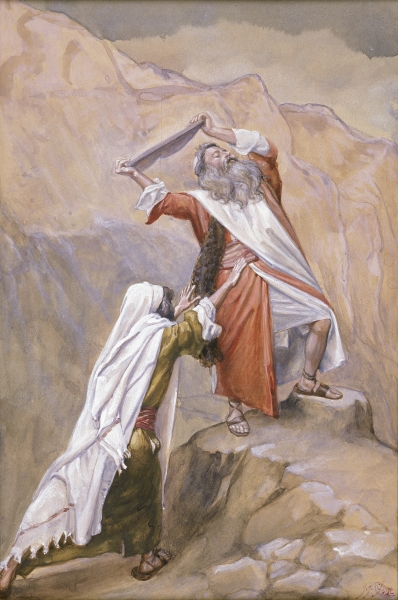 A Midrash explained why Moses broke the stone tablets. When the Israelites committed the sin of the Golden Calf, God sat in judgment to condemn them, as says, "Let Me alone, that I may destroy them," but God had not yet condemned them. So Moses took the tablets from God to appease God's wrath. The Midrash compared the act of Moses to that of a king's marriage-broker. The king sent the broker to secure a wife for the king, but while the broker was on the road, the woman corrupted herself with another man. The broker (who was entirely innocent) took the marriage document that the king had given the broker to seal the marriage and tore it, reasoning that it would be better for the woman to be judged as an unmarried woman than as a wife.
A Midrash explained why Moses broke the stone tablets. When the Israelites committed the sin of the Golden Calf, God sat in judgment to condemn them, as says, "Let Me alone, that I may destroy them," but God had not yet condemned them. So Moses took the tablets from God to appease God's wrath. The Midrash compared the act of Moses to that of a king's marriage-broker. The king sent the broker to secure a wife for the king, but while the broker was on the road, the woman corrupted herself with another man. The broker (who was entirely innocent) took the marriage document that the king had given the broker to seal the marriage and tore it, reasoning that it would be better for the woman to be judged as an unmarried woman than as a wife.
 In , Moses foretold that "A prophet will the Lord your God raise up for you . . . ''like me''," and Rabbi Johanan thus taught that prophets would have to be, like Moses, strong, wealthy, wise, and meek. Strong, for says of Moses, "he spread the tent over the tabernacle," and a Master taught that Moses himself spread it, and reports, "Ten cubits shall be the length of a board." Similarly, the strength of Moses can be derived from , in which Moses reports, "And I took the two tablets, and cast them out of my two hands, and broke them," and it was taught that the tablets were six handbreadths in length, six in breadth, and three in thickness. Wealthy, as reports God's instruction to Moses, "Carve yourself two tablets of stone," and the Rabbis interpreted the verse to teach that the chips would belong to Moses. Wise, for Rav and Samuel both said that 50 gates of understanding were created in the world, and all but one were given to Moses, for said of Moses, "You have made him a little lower than God." Meek, for reports, "Now the man Moses was very meek."
The Avot of Rabbi Natan read the listing of places in to allude to how God tested the Israelites with ten trials in the Wilderness, including that of the Golden Calf in , and they failed them all. The words "In the wilderness" alludes to the Golden Calf, as reports. "On the plain" alludes to how they complained about not having water, as reports. "Facing Suf" alludes to how they rebelled at the Sea of Reeds (or some say to the idol that Micah made). Rabbi Judah cited , "They rebelled at the Sea of Reeds." "Between Paran" alludes to the Twelve Spies, as says, "Moses sent them from the wilderness of Paran." "And Tophel" alludes to the frivolous words (, ''tiphlot'') they said about the
In , Moses foretold that "A prophet will the Lord your God raise up for you . . . ''like me''," and Rabbi Johanan thus taught that prophets would have to be, like Moses, strong, wealthy, wise, and meek. Strong, for says of Moses, "he spread the tent over the tabernacle," and a Master taught that Moses himself spread it, and reports, "Ten cubits shall be the length of a board." Similarly, the strength of Moses can be derived from , in which Moses reports, "And I took the two tablets, and cast them out of my two hands, and broke them," and it was taught that the tablets were six handbreadths in length, six in breadth, and three in thickness. Wealthy, as reports God's instruction to Moses, "Carve yourself two tablets of stone," and the Rabbis interpreted the verse to teach that the chips would belong to Moses. Wise, for Rav and Samuel both said that 50 gates of understanding were created in the world, and all but one were given to Moses, for said of Moses, "You have made him a little lower than God." Meek, for reports, "Now the man Moses was very meek."
The Avot of Rabbi Natan read the listing of places in to allude to how God tested the Israelites with ten trials in the Wilderness, including that of the Golden Calf in , and they failed them all. The words "In the wilderness" alludes to the Golden Calf, as reports. "On the plain" alludes to how they complained about not having water, as reports. "Facing Suf" alludes to how they rebelled at the Sea of Reeds (or some say to the idol that Micah made). Rabbi Judah cited , "They rebelled at the Sea of Reeds." "Between Paran" alludes to the Twelve Spies, as says, "Moses sent them from the wilderness of Paran." "And Tophel" alludes to the frivolous words (, ''tiphlot'') they said about the  The Pirke De-Rabbi Eliezer expounded on the exchange between God and Moses in . The Pirke De-Rabbi Eliezer told that after the incident of the Golden Calf, God told Moses that the Israelites had forgotten God's might and had made an idol. Moses replied to God that while the Israelites had not yet sinned, God had called them "''My'' people," as in , God had said, "And I will bring forth ''My'' hosts, ''My'' people." But Moses noted that once the Israelites had sinned, God told Moses (in ), "Go, get down, for ''your'' people have corrupted themselves." Moses told God that the Israelites were indeed God's people, and God's inheritance, as reports Moses saying, "Yet they are Your people and Your inheritance."
The Pirke De-Rabbi Eliezer expounded on the exchange between God and Moses in . The Pirke De-Rabbi Eliezer told that after the incident of the Golden Calf, God told Moses that the Israelites had forgotten God's might and had made an idol. Moses replied to God that while the Israelites had not yet sinned, God had called them "''My'' people," as in , God had said, "And I will bring forth ''My'' hosts, ''My'' people." But Moses noted that once the Israelites had sinned, God told Moses (in ), "Go, get down, for ''your'' people have corrupted themselves." Moses told God that the Israelites were indeed God's people, and God's inheritance, as reports Moses saying, "Yet they are Your people and Your inheritance."
Deuteronomy chapter 10
A Midrash likened God to a bridegroom, Israel to a bride, and Moses, in , to the scribe who wrote the document of betrothal. The Midrash noted that the Rabbis taught that documents of betrothal and marriage are written only with the consent of both parties, and the bridegroom pays the scribe's fee. The Midrash then taught that God betrothed Israel at Sinai, reading to say, “And the Lord said to Moses: ‘Go to the people and betroth them today and tomorrow.’” The Midrash taught that in , God commissioned Moses to write the document, when God directed Moses, “Carve two tables of stone.” And reports that Moses wrote the document, saying, “And Moses wrote this law.” The Midrash then taught that God compensated Moses for writing the document by giving him a lustrous countenance, as reports, “Moses did not know that the skin of his face sent forth beams.” A Midrash taught that God imposed on Moses the job of carving the two Tablets in in recompense for Moses having grown angry and breaking the first set of Tablets in . The Rabbis taught that bears out , “A time to cast away stones, and a time to gather stones together.” The Rabbis taught that refers to Moses. For there was a time for Moses to cast away the Tablets in , and a time for him to restore them to Israel in . The Rabbis explained that God commanded Moses to carve ''two'' Tablets in because the two Tablets were to act as witnesses between God and Israel. The two Tablets corresponded to the two witnesses whom and require to testify to a cause, to two groomsmen, to bridegroom and bride, to heaven and earth, to this world and the Jewish eschatology, World To Come. Reading the words, "which you broke, and you shall put them," in , Rav Yosef b. Hiyya, Rav Joseph noted that the verse employs superfluous words to describe the Tablets. Rav Joseph reasoned that the two mentionings of the Tablets teaches that both the Tablets and the fragments of the Tablets that Moses broke were deposited in the Ark. Rav Joseph deduced from this that a scholar who has forgotten his learning through no fault of his own (through old age, sickness, or trouble, but not through willful neglect) is still due respect (by analogy to the broken pieces of the tablets that the Israelites nonetheless treated with sanctity). Shimon ben Lakish, Resh Lakish deduced from the interjection of the apparently parenthetical words, "which you broke," in that God was thereby saying to Moses that Moses did well to break them. The Pirke De-Rabbi Eliezer explained how the Levites came to minister before God, as directed in . The Pirke De-Rabbi Eliezer taught that Jacob wished to ford the Zarqa River, Jabbok River and was detained there by an angel, who asked Jacob whether Jacob had not told God (in ), "Of all that you shall give me I will surely give a tenth to You." So Jacob gave a tenth of all the cattle that he had brought from Paddan Aram. Jacob had brought some 5,500 animals, so his tithe came to 550 animals. Jacob again tried to ford the Jabbok, but was hindered again. The angel once again asked Jacob whether Jacob had not told God (in ), "Of all that you shall give me I will surely give a tenth to You." The angel noted that Jacob had sons and that Jacob had not given a tithe of them. So Jacob set aside the four firstborn sons (whom the law excluded from the tithe) of each of the four mothers, and eight sons remained. He began to count from Simeon (Hebrew Bible), Simeon, and included Benjamin, and continued the count from the beginning. And so Levi was reckoned as the tenth son, and thus the tithe, holy to God, as says, "The tenth shall be holy to the Lord." So the angel Michael (archangel), Michael descended and took Levi and brought him up before the Throne of God, Throne of Glory and told God that Levi was God's lot. And God blessed him, that the sons of Levi should minister on earth before God, as directed in like the ministering angels in heaven. Rabbi Hanina deduced from that everything is in the hand of Heaven except the fear of Heaven, for says: "What does the Lord your God ask of you, but only to fear the Lord your God." The Gemara asked whether the fear of Heaven was such a little thing that says "only." Rabbi Hanina said in the name Rabbi Simeon ben Yohai that God has in God's treasury nothing but a store of the fear of Heaven, as says: "The fear of the Lord is His treasure," and thus the fear of Heaven must be a great thing. The Gemara responded that for Moses, the fear of Heaven was a small thing, for he had it. Rabbi Hanina illustrated with a parable: If a man is asked for a big article and he has it, it seems like a small article to him; if he is asked for a small article and he does not have it, it seems like a big article to him. The Sifre interpreted the “ways” of God referred to in ; (as well as ; ; ; ; ; and ) by making reference to , “The Lord, the Lord, God of mercy and grace, slow to wrath and abundant in mercy and truth, keeping lovingkindness for thousands, forgiving transgression, offense, and sin, and cleansing . . . .” Thus the Sifre read , “All who will be called by the name of the Lord shall be delivered,” to teach that just as calls God “merciful and gracious,” we, too, should be merciful and gracious. And just as says, “The Lord is righteous,” we, too, should be righteous. Rav Awira (or some say Rabbi Joshua ben Levi) taught that the Evil Inclination has seven names. God called it "Evil" in , saying, "the imagination of man's heart is evil from his youth." Moses called it "the Brit milah, Uncircumcised" in , saying, "Circumcise therefore the foreskin of your heart." David called it "Unclean" in ; Solomon called it "the Enemy" in ; Isaiah called it "the Stumbling-Block" in ; Ezekiel called it "Stone" in ; and Joel (prophet), Joel called it "the Hidden One" in . Rav Zeira counted five kinds of ''orlah'' (things uncircumcised) in the world: (1) uncircumcised ears (as in ), (2) uncircumcised lips (as in ), (3) uncircumcised hearts (as in and ), (4) uncircumcised flesh (as in ), and (5) uncircumcised trees (as in ). Rav Zeira taught that all the nations are uncircumcised in each of the first four ways, and all the house of Israel are uncircumcised in heart, in that their hearts do not allow them to do God's will. And Rav Zeira taught that in the future, God will take away from Israel the uncircumcision of their hearts, and they will not harden their stubborn hearts anymore before their Creator, as says, "And I will take away the stony heart out of your flesh, and I will give you an heart of flesh," and says, "And you shall be circumcised in the flesh of your foreskin."
 Rabbi Joshua ben Levi said that the men of the Great Assembly were so called because they restored the crown of the divine attributes — the enumeration of God's praise — to its ancient completeness. For in , Moses called God "the great, the mighty, and the awesome." Then when Jeremiah saw foreigners despoiling the Temple, he asked where God's awesome deeds were, and thus in , he omitted "awesome." And then when Daniel saw foreigners enslaving the Israelites, he asked where God's mighty deeds were, and thus in , he omitted the word "mighty." But the men of the Great Assembly came and said that these circumstances showed God's mighty deeds, because God suppressed God's wrath, extending longsuffering to the wicked. And these circumstances showed God's awesome powers, for but for the fear of God, how could the single nation of Israel survive among the many nations. The Gemara asked how Jeremiah and Daniel could alter words established by Moses. Rabbi Eleazar ben Pedat, Eleazar said that since Jeremiah and Daniel knew that God insists on truth, they did not want to ascribe false attributions to God.
Eliezer ben Hurcanus, Rabbi Eliezer the Great taught that the Torah warns against wronging a stranger in 36, or others say 46, places (including ). The Gemara went on to cite Nathan the Babylonian, Rabbi Nathan's interpretation of , "You shall neither wrong a stranger, nor oppress him; for you were strangers in the land of Egypt," to teach that one must not taunt one's neighbor about a flaw that one has oneself. The Gemara taught that thus a proverb says: If there is a case of hanging in a person's family history, do not say to the person, "Hang up this fish for me."
Reading the words, "love the stranger, in giving him food and clothing," in , Akilas the proselyte asked Eliezer ben Hurcanus, Rabbi Eliezer whether food and clothing constituted all the benefit of conversion to Judaism. Rabbi Eliezer replied that food and clothing are no small things, for in , Jacob prayed to God for "bread to eat, and clothing to put on," while God comes and offers it to the convert on a platter. Akilas then visited Joshua ben Hananiah, Rabbi Joshua, who taught that "bread" refers to the Torah (as in , Wisdom — the Torah — says, "Come, eat of my bread"), while "clothing" means the Torah scholar's cloak. A person privileged to study the Torah is thus privileged to perform God's precepts. Moreover, converts' daughters could marry into the priesthood, so that their descendants could offer burnt-offerings on the altar. The Midrash offered another interpretation: "Bread" refers to the showbread, while "clothing" refers to the priestly vestments. The Midrash offered yet another interpretation: "Bread" refers to challah, while "clothing" refers to the first shearings of the sheep, both of which belong to the priests.
Rabbi Joshua ben Levi said that the men of the Great Assembly were so called because they restored the crown of the divine attributes — the enumeration of God's praise — to its ancient completeness. For in , Moses called God "the great, the mighty, and the awesome." Then when Jeremiah saw foreigners despoiling the Temple, he asked where God's awesome deeds were, and thus in , he omitted "awesome." And then when Daniel saw foreigners enslaving the Israelites, he asked where God's mighty deeds were, and thus in , he omitted the word "mighty." But the men of the Great Assembly came and said that these circumstances showed God's mighty deeds, because God suppressed God's wrath, extending longsuffering to the wicked. And these circumstances showed God's awesome powers, for but for the fear of God, how could the single nation of Israel survive among the many nations. The Gemara asked how Jeremiah and Daniel could alter words established by Moses. Rabbi Eleazar ben Pedat, Eleazar said that since Jeremiah and Daniel knew that God insists on truth, they did not want to ascribe false attributions to God.
Eliezer ben Hurcanus, Rabbi Eliezer the Great taught that the Torah warns against wronging a stranger in 36, or others say 46, places (including ). The Gemara went on to cite Nathan the Babylonian, Rabbi Nathan's interpretation of , "You shall neither wrong a stranger, nor oppress him; for you were strangers in the land of Egypt," to teach that one must not taunt one's neighbor about a flaw that one has oneself. The Gemara taught that thus a proverb says: If there is a case of hanging in a person's family history, do not say to the person, "Hang up this fish for me."
Reading the words, "love the stranger, in giving him food and clothing," in , Akilas the proselyte asked Eliezer ben Hurcanus, Rabbi Eliezer whether food and clothing constituted all the benefit of conversion to Judaism. Rabbi Eliezer replied that food and clothing are no small things, for in , Jacob prayed to God for "bread to eat, and clothing to put on," while God comes and offers it to the convert on a platter. Akilas then visited Joshua ben Hananiah, Rabbi Joshua, who taught that "bread" refers to the Torah (as in , Wisdom — the Torah — says, "Come, eat of my bread"), while "clothing" means the Torah scholar's cloak. A person privileged to study the Torah is thus privileged to perform God's precepts. Moreover, converts' daughters could marry into the priesthood, so that their descendants could offer burnt-offerings on the altar. The Midrash offered another interpretation: "Bread" refers to the showbread, while "clothing" refers to the priestly vestments. The Midrash offered yet another interpretation: "Bread" refers to challah, while "clothing" refers to the first shearings of the sheep, both of which belong to the priests.
 A Midrash read to say, “Love therefore the convert,” and read it together with , which the Midrash read as, “The Lord loves the righteous; the Lord preserves the converts.” The Midrash taught that God loves those who love God, and thus God loves the righteous, because their worth is due neither to heritage nor to family. The Midrash compared God's great love of converts to a king who had a flock of goats, and once a stag came in with the flock. When the king was told that the stag had joined the flock, the king felt an affection for the stag and gave orders that the stag have good pasture and drink and that no one beat him. When the king's servants asked him why he protected the stag, the king explained that the flock have no choice, but the stag did. The king accounted it as a merit to the stag that had left behind the whole of the broad, vast wilderness, the abode of all the beasts, and had come to stay in the courtyard, in like manner, God provided converts with special protection, for God exhorted Israel not to harm them, as says, “Love therefore the convert,” and says, “And a convert shall you not oppress.”
A Midrash read to say, “Love therefore the convert,” and read it together with , which the Midrash read as, “The Lord loves the righteous; the Lord preserves the converts.” The Midrash taught that God loves those who love God, and thus God loves the righteous, because their worth is due neither to heritage nor to family. The Midrash compared God's great love of converts to a king who had a flock of goats, and once a stag came in with the flock. When the king was told that the stag had joined the flock, the king felt an affection for the stag and gave orders that the stag have good pasture and drink and that no one beat him. When the king's servants asked him why he protected the stag, the king explained that the flock have no choice, but the stag did. The king accounted it as a merit to the stag that had left behind the whole of the broad, vast wilderness, the abode of all the beasts, and had come to stay in the courtyard, in like manner, God provided converts with special protection, for God exhorted Israel not to harm them, as says, “Love therefore the convert,” and says, “And a convert shall you not oppress.”
 The Gemara deduced from that it is a positive commandment to fear God.
A Midrash taught that the Israelites were counted on ten occasions: (1) when they went down to Egypt (as reported in ), (2) when they went up out of Egypt, (3) at the first census in Numbers, (4) at the second census in Numbers, (5) once for the banners, (6) once in the time of Joshua for the division of the Land of Israel, (7) once by Saul, (8) a second time by Saul, (9) once by David, and (10) once in the time of Ezra.
The Gemara deduced from that it is a positive commandment to fear God.
A Midrash taught that the Israelites were counted on ten occasions: (1) when they went down to Egypt (as reported in ), (2) when they went up out of Egypt, (3) at the first census in Numbers, (4) at the second census in Numbers, (5) once for the banners, (6) once in the time of Joshua for the division of the Land of Israel, (7) once by Saul, (8) a second time by Saul, (9) once by David, and (10) once in the time of Ezra.

Deuteronomy chapter 11
The Gemara reported a number of Rabbis' reports of how the Land of Israel did indeed flow with "milk and honey," as described in an17
, and , , and , and , , an
, and . Once when Rami bar Ezekiel visited Bnei Brak, he saw goats grazing under fig trees while honey was flowing from the figs, and milk dripped from the goats mingling with the fig honey, causing him to remark that it was indeed a land flowing with milk and honey. Rabbi Jacob ben Dostai said that it is about three miles from Lod to Ono, Benjamin, Ono, and once he rose up early in the morning and waded all that way up to his ankles in fig honey. Resh Lakish said that he saw the flow of the milk and honey of Sepphoris extend over an area of sixteen miles by sixteen miles. Rabbah bar bar Hana said that he saw the flow of the milk and honey in all the Land of Israel and the total area was equal to an area of twenty-two parasangs by six parasangs. Already at the time of the Mishnah, constituted the second part of a standard ''Shema'' prayer that the priests recited daily, following and preceding . The first three chapters of tractate Berakhot (Talmud), Berakhot in the Mishnah, Jerusalem Talmud, and Babylonian Talmud and the first two chapters of tractate Berakhot in the Tosefta interpreted the laws of the ''Shema'' in and . Rabbi Joshua ben Korhah taught that the ''Shema'' prayer puts before so that those who say the prayer should first accept upon themselves the yoke of Heaven's sovereignty and then take upon themselves the yoke of the commandments. And comes before because applies both day and night (since it mentions all the commandments), whereas is applicable only to the day (since it mentions only the precept of the fringes, which is not obligatory at night). Reading , "To love the Lord your God and to serve Him with all your heart," a Baraita equated service of the heart with prayer. And that mentions rain immediately thereafter indicates that it is appropriate to pray for rain. The Mishnah taught that the absence of one of the two portions of scripture in the mezuzah — and — invalidates the other, and indeed even one imperfect letter can invalidates the whole. The Mishnah taught that the absence of one of the four portions of scripture in the Tefillin — an
11–16
and and — invalidates the others, and indeed even one imperfect letter can invalidate the whole. The Rabbis in a Baraita questioned what was to be learned from the words of "And you shall gather in your corn and wine and oil." Rabbi Ishmael replied that since says, "This book of the law shall not depart out of your mouth, but you shall meditate therein day and night," one might think that one must take this injunction literally (and study Torah every waking moment). Therefore, directs one to "gather in your corn," implying that one should combine Torah study with a worldly occupation. Rabbi Simeon ben Yohai questioned that, however, asking if a person plows in plowing season, sows in sowing season, reaps in reaping season, threshes in threshing season, and winnows in the season of wind, when would one find time for Torah? Rather, Rabbi Simeon ben Yohai taught that when Israel performs God's will, others perform its worldly work, as says, "And strangers shall stand and feed your flocks, aliens shall be your plowmen and vine-trimmers; while you shall be called ‘Priests of the Lord,' and termed ‘Servants of our God.'" And when Israel does not perform God's will, it has to carry out its worldly work by itself, as says, "And you shall gather in your corn." And not only that, but the Israelites would also do the work of others, as says, "And you shall serve your enemy whom the Lord will let loose against you. He will put an iron yoke upon your neck until He has wiped you out." Abaye observed that many had followed Rabbi Ishmael's advice to combine secular work and Torah study and it worked well, while others have followed the advice of Rabbi Simeon ben Yohai to devote themselves exclusively to Torah study and not succeeded. Rava (amora), Rava would ask the Rabbis (his disciples) not to appear before him during Nisan (when corn ripened) and Tishrei (when people pressed grapes and olives) so that they might not be anxious about their food supply during the rest of the year. Judah bar Ezekiel, Rav Judah taught in the name of Rav that one is forbidden to eat before giving food to one's animals, as says, "And I will give grass in your fields for your cattle," and only after that does say, "you shall eat and be satisfied." The Mekhilta of Rabbi Ishmael deduced from , "Take heed to yourselves, lest your heart be deceived . . . and the anger of the Lord be kindled against you," that the Land of Israel was one of three things given conditionally — along with the Temple and the kingdom of David — but thus excepting the Torah and the covenant with Aaron, which were unconditional. The Rabbis taught in a Baraita that says of the Torah, "So you fix (, ''ve-samtem'') these My words in your heart and in your soul." The Rabbis taught that one should read the word ''samtem'' rather as ''sam tam'' (meaning "a perfect remedy"). The Rabbis thus compared the Torah to a perfect remedy. The Rabbis compared this to a man who struck his son a strong blow, and then put a compress on the son's wound, telling his son that so long as the compress was on his wound, he could eat and drink at will, and bathe in hot or cold water, without fear. But if the son removed the compress, his skin would break out in sores. Even so, did God tell Israel that God created the Evil Inclination (, ''yetzer hara''), but also created the Torah as its antidote. God told Israel that if they occupied themselves with the Torah, they would not be delivered into the hand of the Evil Inclination, as says: "If you do well, shall you not be exalted?" But if Israel did not occupy themselves with the Torah, they would be delivered into the hand of the Evil Inclination, as says: "sin couches at the door." Moreover, the Rabbis taught, the Evil Inclination is altogether preoccupied to make people sin, as says: "and to you shall be his desire." Yet if one wishes, one can rule over the Evil Inclination, as says: "and you shall rule over him." The Rabbis taught in a Baraita that the Evil Inclination is hard to bear, since even God its Creator called it evil, as in , God says, "the desire of man's heart is evil from his youth." Rav Isaac taught that a person's Evil Inclination renews itself against that person daily, as says, "Every imagination of the thoughts of his heart was only evil ''every day''." And Rabbi Simeon ben Levi (or others say Rabbi Simeon ben Lakish) taught that a person's Evil Inclination gathers strength against that person daily and seeks to slay that person, as says, "The wicked watches the righteous, and seeks to slay him." And if God were not to help a person, one would not be able to prevail against one's Evil Inclination, for as says, "The Lord will not leave him in his hand."
 Rabbi Tarfon, Rabbi Akiva, and Rabbi Jose the Galilean were reclining at a meal in the house of Aris in Lod, Lydda when the question was presented to them of which is more important, learning or action. Rabbi Tarfon said action, Rabbi Akiva said learning, and then all responded that learning is more important, for learning brings about action. Rabbi Jose the Galilean argued that learning is more important, for the religious duty to learn the Torah came before the religious duty to separate dough–offering by 40 years, the obligation to separate tithes by 44 years, the obligation of the years of release by 61 years, and the obligation of the Jubilee Year by 103 years. And the Sifre taught that just as a more severe penalty pertains to neglect of learning than to neglect of doing required deeds, so a more abundant reward attaches to learning than to the doing of required deeds, for says, “And you shall teach them your children, talking of them,” and follows immediately, saying, “That your days may be multiplied, and the days of your children.”
Rabban Gamaliel cited as an instance where the Torah alludes to life after death. The Gemara related that sectarians asked Rabban Gamaliel where Scripture says that God will resurrect the dead. Rabban Gamaliel answered them from the Torah, the Prophets (, ''Nevi'im''), and the Writings (, ''Ketuvim''), yet the sectarians did not accept his proofs. From the Torah, Rabban Gamaliel cited , "And the Lord said to Moses, ‘Behold, you shall sleep with your fathers and rise up [again].'" But the sectarians replied that perhaps reads, "and the people will rise up." From the Prophets, Rabban Gamaliel cited , "Your dead men shall live, together with my dead body shall they arise. Awake and sing, you who dwell in the dust: for your dew is as the dew of herbs, and the earth shall cast out its dead." But the sectarians rejoined that perhaps refers to the dead whom Ezekiel resurrected in . From the Writings, Rabban Gamaliel cited , "And the roof of your mouth, like the best wine of my beloved, that goes down sweetly, causing the lips of those who are asleep to speak." (As the Rabbis interpreted Song of Songs as a dialogue between God and Israel, they understood to refer to the dead, whom God will cause to speak again.) But the sectarians rejoined that perhaps means merely that the lips of the departed will move. For Rabbi Johanan said that if a ''Halakha, halachah'' (legal ruling) is said in any person's name in this world, the person's lips speak in the grave, as says, "causing the lips of those that are asleep to speak." Thus Rabban Gamaliel did not satisfy the sectarians until he quoted , "which the Lord swore to your fathers to give to them." Rabban Gamaliel noted that God swore to give the land not "to you" (the Israelites whom Moses addressed) but "to them" (the Patriarchs, who had long since died). Others say that Rabban Gamaliel proved it from , "But you who did cleave to the Lord your God are alive every one of you this day." And (the superfluous use of "this day" implies that) just as you are all alive today, so shall you all live again in the World To Come.
A Midrash asked to which commandment refers when it says, "For if you shall diligently keep all ''this commandment'' that I command you, to do it, to love the Lord your God, to walk in all His ways, and to cleave to Him, then will the Lord drive out all these nations from before you, and you shall dispossess nations greater and mightier than yourselves." Rabbi Levi said that "this commandment" refers to the recitation of the ''Shema'' (), but the Rabbis said that it refers to the Sabbath, which is equal to all the precepts of the Torah.
Interpreting the words "to walk in all His ways" in , the Sifre taught that to walk in God's ways means to be (in the words of ) "merciful and gracious." Similarly, Rabbi Hama son of Rabbi Hanina asked what means in the text, "You shall walk after the Lord your God." How can a human being walk after God, when says, "[T]he Lord your God is a devouring fire"? Rabbi Hama son of Rabbi Hanina explained that the command to walk after God means to walk after the attributes of God. As God clothes the naked — for says, "And the Lord God made for Adam and for his wife coats of skin, and clothed them" — so should we also clothe the naked. God visited the sick — for says, "And the Lord appeared to him by the oaks of Mamre" (after
Rabbi Tarfon, Rabbi Akiva, and Rabbi Jose the Galilean were reclining at a meal in the house of Aris in Lod, Lydda when the question was presented to them of which is more important, learning or action. Rabbi Tarfon said action, Rabbi Akiva said learning, and then all responded that learning is more important, for learning brings about action. Rabbi Jose the Galilean argued that learning is more important, for the religious duty to learn the Torah came before the religious duty to separate dough–offering by 40 years, the obligation to separate tithes by 44 years, the obligation of the years of release by 61 years, and the obligation of the Jubilee Year by 103 years. And the Sifre taught that just as a more severe penalty pertains to neglect of learning than to neglect of doing required deeds, so a more abundant reward attaches to learning than to the doing of required deeds, for says, “And you shall teach them your children, talking of them,” and follows immediately, saying, “That your days may be multiplied, and the days of your children.”
Rabban Gamaliel cited as an instance where the Torah alludes to life after death. The Gemara related that sectarians asked Rabban Gamaliel where Scripture says that God will resurrect the dead. Rabban Gamaliel answered them from the Torah, the Prophets (, ''Nevi'im''), and the Writings (, ''Ketuvim''), yet the sectarians did not accept his proofs. From the Torah, Rabban Gamaliel cited , "And the Lord said to Moses, ‘Behold, you shall sleep with your fathers and rise up [again].'" But the sectarians replied that perhaps reads, "and the people will rise up." From the Prophets, Rabban Gamaliel cited , "Your dead men shall live, together with my dead body shall they arise. Awake and sing, you who dwell in the dust: for your dew is as the dew of herbs, and the earth shall cast out its dead." But the sectarians rejoined that perhaps refers to the dead whom Ezekiel resurrected in . From the Writings, Rabban Gamaliel cited , "And the roof of your mouth, like the best wine of my beloved, that goes down sweetly, causing the lips of those who are asleep to speak." (As the Rabbis interpreted Song of Songs as a dialogue between God and Israel, they understood to refer to the dead, whom God will cause to speak again.) But the sectarians rejoined that perhaps means merely that the lips of the departed will move. For Rabbi Johanan said that if a ''Halakha, halachah'' (legal ruling) is said in any person's name in this world, the person's lips speak in the grave, as says, "causing the lips of those that are asleep to speak." Thus Rabban Gamaliel did not satisfy the sectarians until he quoted , "which the Lord swore to your fathers to give to them." Rabban Gamaliel noted that God swore to give the land not "to you" (the Israelites whom Moses addressed) but "to them" (the Patriarchs, who had long since died). Others say that Rabban Gamaliel proved it from , "But you who did cleave to the Lord your God are alive every one of you this day." And (the superfluous use of "this day" implies that) just as you are all alive today, so shall you all live again in the World To Come.
A Midrash asked to which commandment refers when it says, "For if you shall diligently keep all ''this commandment'' that I command you, to do it, to love the Lord your God, to walk in all His ways, and to cleave to Him, then will the Lord drive out all these nations from before you, and you shall dispossess nations greater and mightier than yourselves." Rabbi Levi said that "this commandment" refers to the recitation of the ''Shema'' (), but the Rabbis said that it refers to the Sabbath, which is equal to all the precepts of the Torah.
Interpreting the words "to walk in all His ways" in , the Sifre taught that to walk in God's ways means to be (in the words of ) "merciful and gracious." Similarly, Rabbi Hama son of Rabbi Hanina asked what means in the text, "You shall walk after the Lord your God." How can a human being walk after God, when says, "[T]he Lord your God is a devouring fire"? Rabbi Hama son of Rabbi Hanina explained that the command to walk after God means to walk after the attributes of God. As God clothes the naked — for says, "And the Lord God made for Adam and for his wife coats of skin, and clothed them" — so should we also clothe the naked. God visited the sick — for says, "And the Lord appeared to him by the oaks of Mamre" (after In medieval Jewish interpretation
The parashah is discussed in these Middle Ages, medieval Jewish sources: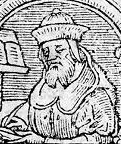
Deuteronomy chapter 8
Rashi read the words of , “whether you would keep His commandments,” to indicate that God was testing whether the Israelites would suspect God or question God's ways.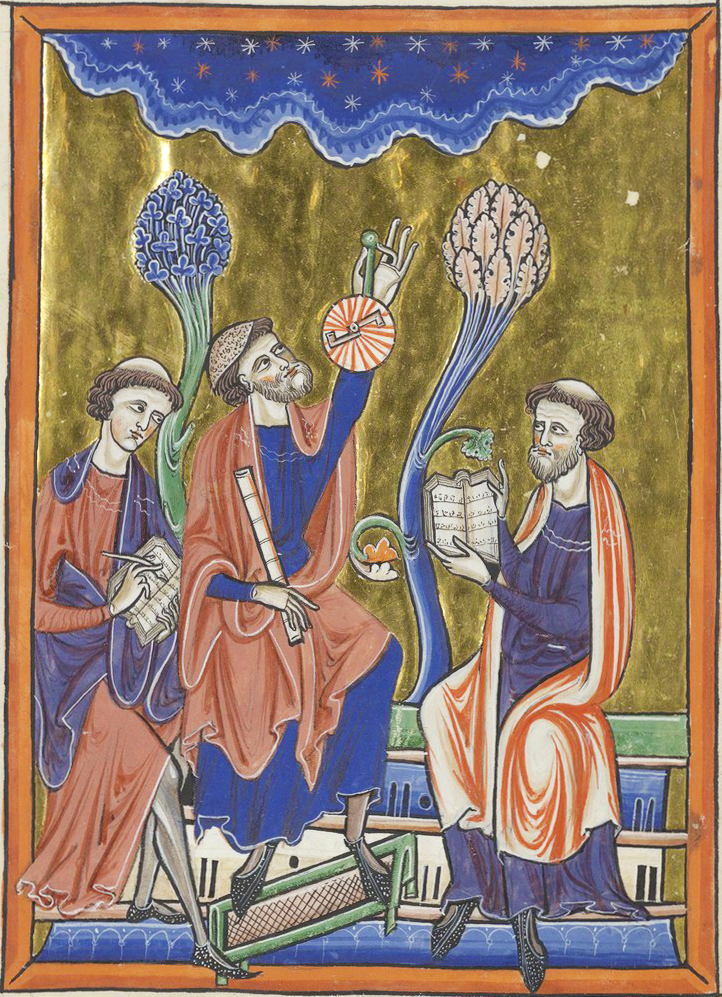 Reading the words of , “in order to afflict you,” Rashbam noted that it is a form of affliction when one has no bread in one's basket, and one's life is dependent on bread arriving miraculously from heaven every day.
Bahya ibn Paquda, Baḥya ibn Paquda read , "That He might make known to you that man does not live by bread alone," to teach that those who trust in God have their sustenance assured by any of the means available in the world.
Abraham ibn Ezra offered that the words of , “and suffered you to hunger,” might refer to before the coming of the manna, or, alternatively, that the manna itself afflicted the Israelites, because it was light and did not satisfy their desires. But Ibn Ezra rejected this explanation, arguing that the verse most probably refers to other desires that the Israelites could not fulfill in the wilderness.
Reading the words of , “in order to afflict you,” Rashbam noted that it is a form of affliction when one has no bread in one's basket, and one's life is dependent on bread arriving miraculously from heaven every day.
Bahya ibn Paquda, Baḥya ibn Paquda read , "That He might make known to you that man does not live by bread alone," to teach that those who trust in God have their sustenance assured by any of the means available in the world.
Abraham ibn Ezra offered that the words of , “and suffered you to hunger,” might refer to before the coming of the manna, or, alternatively, that the manna itself afflicted the Israelites, because it was light and did not satisfy their desires. But Ibn Ezra rejected this explanation, arguing that the verse most probably refers to other desires that the Israelites could not fulfill in the wilderness.
 Ibn Ezra read to promise that God would reward the Israelites by bringing them into the Land, because they obeyed God, even though in order to chasten them, God afflicted them with thirst and hunger.
Reading “so the Lord your God chastens you” in , Nachmanides suggested that God afflicted the Israelites at first with the wilderness and the trial of the manna so that later the goodness of the Land and its fruits would be pleasing to them.
Saadia Gaon read the words of , "And your silver and your gold is multiplied, and all that you have is multiplied; then your heart be lifted up, and you forget the Lord your God," to teach that if all goes well and runs smoothly for those engaged in the accumulation of money, then they are apt to put their entire trust in money and forget to make mention of their Master and deny their Provider. Reading , Hezekiah ben Manoah (the Hizkuni) lamented that the phenomenon of becoming haughty is tragically all too common. Reading , Bahya ben Asher taught that pride is the principal cause of forgetting essentials. Due to the abundance of affluence, peace, and tranquility, a person's heart can become haughty and smug, and the evil urge (, ''yetzer hara'') can find it easy to provoke a person to follow the heart without restraint. When that happens, Heaven's concerns become marginal. In , "and you say in your heart: ‘My strength and the power of my hand has gotten me this wealth,'" Bahya ben Asher read Moses to warn of the possibility that arrogance can lead one to ascribe affluence to one's own lucky stars. And reading , "you shall remember the Lord your God," Bahya ben Asher taught that God alone is the Source of good fortune, because God has given people the strength to perform deeds of valor, and has handed people the power to overcome bad fortune in their stars. Abraham ibn Ezra read Moses to warn the Israelites in that they might forget that they were slaves with downcast hearts, forget the affliction and the hunger that they experienced in the wilderness, and forget that God sustained them nonetheless. But Ibn Ezra read the words "But you shall remember" in to teach that if the thought "My power and the might of my hand has gotten me this wealth" should enter one's mind, then one should remember the One Who gives one power.
Baḥya ibn Paquda read the words of , "to benefit you in your end," to refer to the promise of compensation in the World To Come. Baḥya suggested that this principle, in turn, might provide one possible reason for why some righteous people are prevented from obtaining their livelihood without effort and must instead exert themselves for it and be tested by it.
Reading the words of , "But you must remember the Lord your God, for it is He that gives you strength to make wealth, in order to establish His covenant which He swore to your forefathers, as it is this day," Baḥya ibn Paquda taught that people should not think that their livelihood depends on a particular means and that if those means fail, then their livelihood will not come from a different means. Rather, people should trust in God, and know that all means are equal for God. God can provide using whatever means and at any time and however God wishes.
As the numeric value (gematria) of the word "power" (, ''koach'') in is 28, Jacob ben Asher (the Baal Ha-Turim) saw an allusion to Joshua, who lead the Israelites for 28 years. And the Baal Ha-Turim saw a connection with the reference to Joshua in , "‘Let the Lord, the God of the spirits of all flesh, set a man over the congregation, who may go out before them, and who may come in before them, and who may lead them out, and who may bring them in; that the congregation of the Lord be not as sheep which have no shepherd,'" as those two verses contain 28 words in Hebrew.
Ibn Ezra read to promise that God would reward the Israelites by bringing them into the Land, because they obeyed God, even though in order to chasten them, God afflicted them with thirst and hunger.
Reading “so the Lord your God chastens you” in , Nachmanides suggested that God afflicted the Israelites at first with the wilderness and the trial of the manna so that later the goodness of the Land and its fruits would be pleasing to them.
Saadia Gaon read the words of , "And your silver and your gold is multiplied, and all that you have is multiplied; then your heart be lifted up, and you forget the Lord your God," to teach that if all goes well and runs smoothly for those engaged in the accumulation of money, then they are apt to put their entire trust in money and forget to make mention of their Master and deny their Provider. Reading , Hezekiah ben Manoah (the Hizkuni) lamented that the phenomenon of becoming haughty is tragically all too common. Reading , Bahya ben Asher taught that pride is the principal cause of forgetting essentials. Due to the abundance of affluence, peace, and tranquility, a person's heart can become haughty and smug, and the evil urge (, ''yetzer hara'') can find it easy to provoke a person to follow the heart without restraint. When that happens, Heaven's concerns become marginal. In , "and you say in your heart: ‘My strength and the power of my hand has gotten me this wealth,'" Bahya ben Asher read Moses to warn of the possibility that arrogance can lead one to ascribe affluence to one's own lucky stars. And reading , "you shall remember the Lord your God," Bahya ben Asher taught that God alone is the Source of good fortune, because God has given people the strength to perform deeds of valor, and has handed people the power to overcome bad fortune in their stars. Abraham ibn Ezra read Moses to warn the Israelites in that they might forget that they were slaves with downcast hearts, forget the affliction and the hunger that they experienced in the wilderness, and forget that God sustained them nonetheless. But Ibn Ezra read the words "But you shall remember" in to teach that if the thought "My power and the might of my hand has gotten me this wealth" should enter one's mind, then one should remember the One Who gives one power.
Baḥya ibn Paquda read the words of , "to benefit you in your end," to refer to the promise of compensation in the World To Come. Baḥya suggested that this principle, in turn, might provide one possible reason for why some righteous people are prevented from obtaining their livelihood without effort and must instead exert themselves for it and be tested by it.
Reading the words of , "But you must remember the Lord your God, for it is He that gives you strength to make wealth, in order to establish His covenant which He swore to your forefathers, as it is this day," Baḥya ibn Paquda taught that people should not think that their livelihood depends on a particular means and that if those means fail, then their livelihood will not come from a different means. Rather, people should trust in God, and know that all means are equal for God. God can provide using whatever means and at any time and however God wishes.
As the numeric value (gematria) of the word "power" (, ''koach'') in is 28, Jacob ben Asher (the Baal Ha-Turim) saw an allusion to Joshua, who lead the Israelites for 28 years. And the Baal Ha-Turim saw a connection with the reference to Joshua in , "‘Let the Lord, the God of the spirits of all flesh, set a man over the congregation, who may go out before them, and who may come in before them, and who may lead them out, and who may bring them in; that the congregation of the Lord be not as sheep which have no shepherd,'" as those two verses contain 28 words in Hebrew.

Deuteronomy chapter 10
Maimonides and the siddur report that the Levites would recite the Psalm for the Day in the Temple. Rashi taught that it was on the first day of Elul that God told Moses, in the words of , “In the morning you shall ascend Mount Sinai,” to receive the second tablets, and Moses spent 40 days there, as reported in , “And I remained upon the mountain just as the first days.” And on Yom Kippur, God was placated toward Israel and told Moses, in the words of , “I have forgiven, as you have spoken.” Citing , , and , Baḥya ibn Paquda taught that to love God and to love the stranger are leading examples of a duties of the heart. Reading the description of God by Moses in , "For the Lord your God is God supreme and Lord supreme, the great, the mighty, and the awesome God, who . . . upholds the cause of the fatherless and the widow," Baḥya ibn Paquda argued we can see that God possesses these attributes from the evidence of God's deeds towards God's creations and from the wisdom and power that God's deeds reflect. But Baḥya cautioned that one must be careful not to take descriptions of God's attributes literally or in a physical sense. Rather, one must know that they are metaphors, geared to what we are capable of grasping with our powers of understanding, because of our urgent need to know God. But God is infinitely greater and loftier than all of these attributes.Deuteronomy chapter 11
Maimonides cited to support the proposition that it is a positive Torah commandment to pray every day, for states: “You shall serve God, your Lord,” and tradition teaches that this service is prayer, as says, “And serve Him with all your heart,” and our Sages said that the service of the heart is prayer.In modern interpretation
The parashah is discussed in these modern sources:
Deuteronomy chapter 7
Professor Harold Fisch, formerly of Bar-Ilan University, argued that William Shakespeare echoed the command of , “you shall well remember,” in the Ghost (Hamlet), ghost's admonition to Prince Hamlet, “Remember me,” iI, scene 5, line 98
of the play ''Hamlet''. Professor Robert A. Oden, formerly of Dartmouth College, taught that the idea that spoils of Religious war, holy war were devoted to God (, ''Herem (priestly gift), cherem'') evident in , and was revelatory of (1) as "to the victor belong the spoils," then since God owned the spoils, then God must have been the victor and not any human being, and (2) the sacred and religiously obligatory nature of holy war, as participants gained no booty as a motivation for participation.
Deuteronomy chapter 8
The late 16th century Safed commentator Moshe Alshich noted that appears to repeat , "Be careful lest you forget the Lord your God." Alshich explained that the evil urge (, ''yetzer hara'') works repetitively to subvert a person's character. The evil urge knows that it is easier to subvert successful people into believing in the success of their own efforts than to convince people of average means that they do not need God. Alshich taught that thus reflects the way that the evil urge works. The process of moving away from serving God can be gradual, almost imperceptibly slow. It can start not by failing to observe the commandments, but by failing to see them as God's will. Thus reflects that one can observe the commandments only for the sake of obtaining the reward that the Torah promises. reflects the next step that one might eat and be satisfied without giving credit to God. After this, as reports, one might give one's self credit for one's success. Still later, in , one might give credit to idols. Moses thus warns against the insidious, indirect way that the evil urge attacks.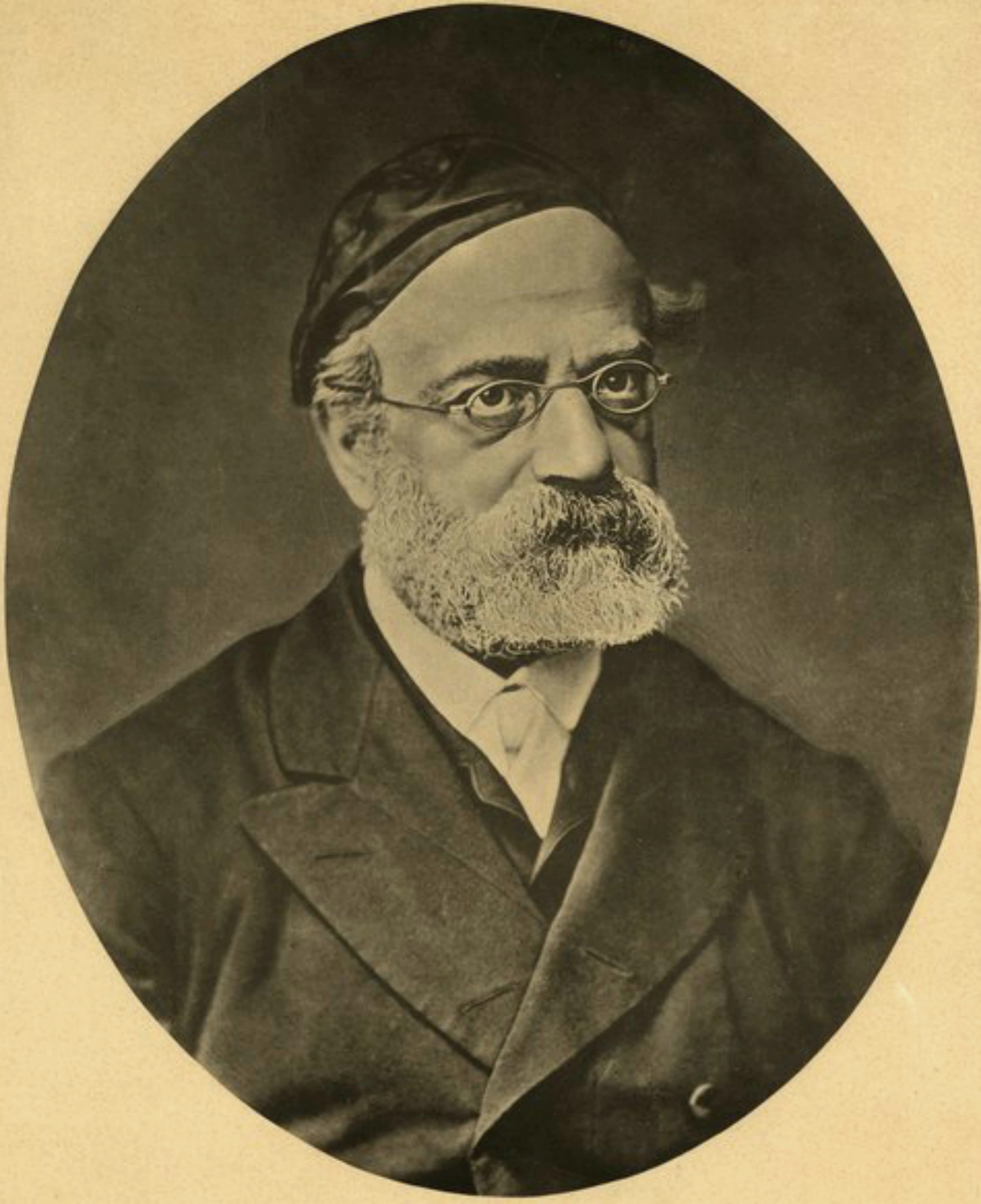 The 19th century Germany, German Orthodox Judaism, Orthodox Rabbi Samson Raphael Hirsch read the word "power" (, ''koach'') in to comprehend everything that makes up one's creative personality and capacity to earn — intelligence, skill, foresight, health — and explained that this comes not from the food that one eats but directly from God. And the external circumstances that bring about success depend on God alone. Hirsch taught that the very smallest part of one's good fortune can be ascribed to one's own merit, and more is due to the merit of one's ancestors, whose virtues God rewards with their descendants' good fortune.
Reading , the 20th century Israeli scholar Nechama Leibowitz wrote that people in their blindness tend to detect the guiding hand of Providence only when manifested in visible miracles, as the Israelites witnessed in the wilderness. People fail to see the hidden miracles performed for them continually when the world around them seems to be going on as usual. For this reason, the formulators of the liturgy obliged Jews to give thanks three times daily (in the final benedictions of the ''Amidah'' prayer) "for Your miracles that are with us every day and for Your wonders and Your bounties that are at all times, evening, morning, and noon."
The 19th century Germany, German Orthodox Judaism, Orthodox Rabbi Samson Raphael Hirsch read the word "power" (, ''koach'') in to comprehend everything that makes up one's creative personality and capacity to earn — intelligence, skill, foresight, health — and explained that this comes not from the food that one eats but directly from God. And the external circumstances that bring about success depend on God alone. Hirsch taught that the very smallest part of one's good fortune can be ascribed to one's own merit, and more is due to the merit of one's ancestors, whose virtues God rewards with their descendants' good fortune.
Reading , the 20th century Israeli scholar Nechama Leibowitz wrote that people in their blindness tend to detect the guiding hand of Providence only when manifested in visible miracles, as the Israelites witnessed in the wilderness. People fail to see the hidden miracles performed for them continually when the world around them seems to be going on as usual. For this reason, the formulators of the liturgy obliged Jews to give thanks three times daily (in the final benedictions of the ''Amidah'' prayer) "for Your miracles that are with us every day and for Your wonders and Your bounties that are at all times, evening, morning, and noon."
Deuteronomy chapter 10
In , Moses reported that God had made the Israelites as numerous as the stars, echoing , in which God promised that Abraham's descendants would be as numerous as the stars of heaven, and , in which God promised that Abraham's descendants would be as numerous as the stars of heaven and the sands on the seashore. The astronomer Carl Sagan reported that there are more stars in the universe than sands on all the beaches on the Earth.Deuteronomy chapter 11
Dr. Nathan MacDonald (Bible Scholar), Nathan MacDonald of St John's College, Cambridge, reported some dispute over the meaning of the description of the Land of Israel as a "land flowing with milk and honey," as in an17
an
, an
and
an
an
MacDonald wrote that the term for milk (, ''chalav'') could easily be the word for "fat" (, ''chelev''), and the word for honey (, ''devash'') could indicate not bees' honey but a sweet syrup made from fruit. The expression evoked a general sense of the bounty of the land and suggested an ecological richness exhibited in a number of ways, not just with milk and honey. MacDonald noted that the expression was always used to describe a land that the people of Israel had not yet experienced, and thus characterized it as always a future expectation. Professor Donald Englert, who taught at the Lancaster Theological Seminary in the second half of the 20th century, suggested that “water with your foot” in may have been a euphemism for “to urinate.” Professor Walter Brueggemann, formerly of Columbia Theological Seminary, argued that the "if-then" structure of , a trademark rhetorical feature of the Deuteronomic tradition, makes clear that the gift of the land was not an automatic given but a consequence of obedience. The double "if-then" of linked land and obedience, making the gift of the land conditional. First, says the positive "if-then" — stating the "if" of obedience in familiar cadences bespeaking total commitment in two standard verbs ("love" and "serve") plus the formula from the ''Shema'' in . The "then," the consequence of obedience, is abundant rain in every season that will cause the land to produce everything needed, made explicit through three phrases — first, "grain, wine, oil," a common triad to signal a rich, productive economy (see
22
; second, the pasture land for cattle on which the agrarian economy depended (see , ); and third, the rhetoric of satiation from . Then follows with the negative "if-then" — the "if" being the nullification in of the ''Shema'' of , the compromise of covenantal identity by embracing other gods who seem better at giving rain while making lesser demands. And the negative "then" being drought, as rain is God's gift (see ; ; ; ; and ). Brueggemann wrote that because of the urgency of obedience, returns to the educational accent of , urging the internalizing of passionate covenantal conviction among the young through the mandate to produce signs, emblems, conversations, and marked doorposts and gates.
Commandments
According to Sefer ha-Chinuch, there are 6 positive and 2 negative Mitzvah, commandments in the parashah. *Not to derive benefit from any ornamentation of an idol *Not to take any object from idolatry into our possession, to derive benefit from it *The precept of blessing the Almighty for the food we receive *The precept of love for converts to Judaism *The precept of reverent awe for the Eternal Lord. *The precept of prayer to the Almighty *The mitzvah of associating with Torah scholars and adhering to them *That whoever needs to take an oath should swear by the Name of the Eternal Lord
In the liturgy
In the Blessing after Meals (''Birkat Hamazon''), Jews sometimes quote , the Scriptural basis for the Blessing after Meals, immediately before the invitation (''zimun''), and quote it again at the close of the second blessing (for the Land of Israel). The opening sentence of the ''Amidah'' prayer quotes Moses's characterization of God in as "the great, the mighty, and the awesome."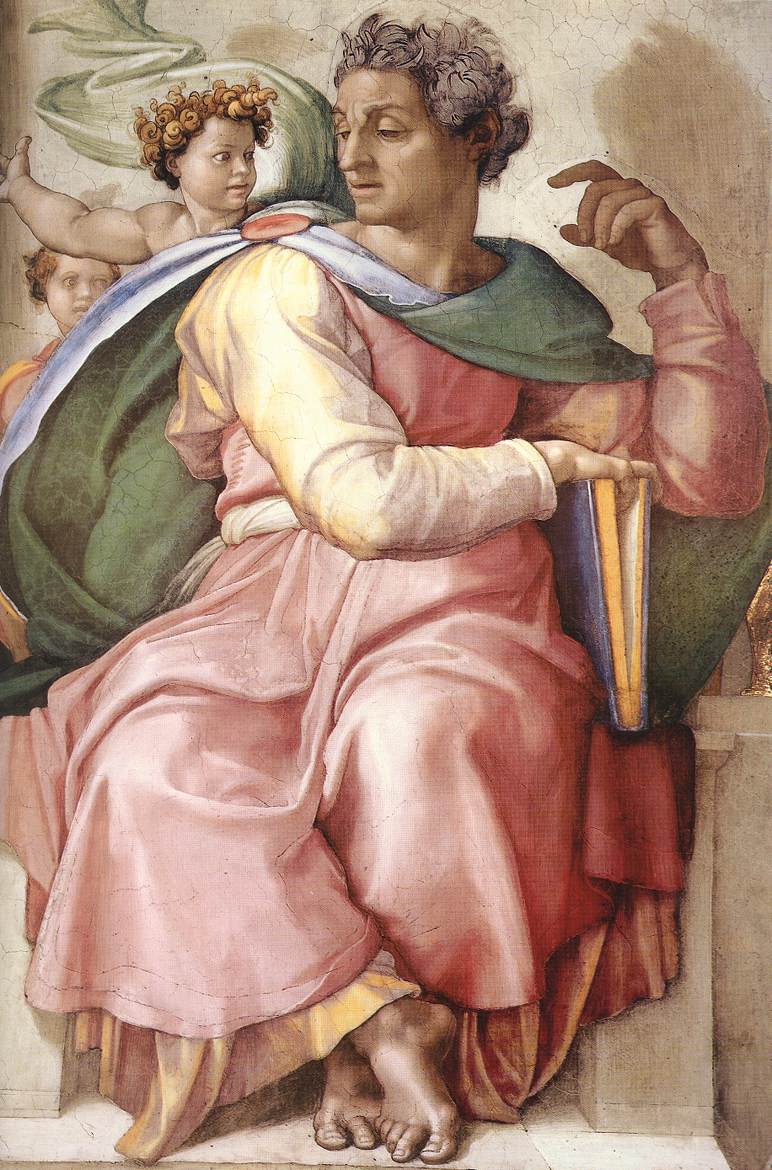 The Passover Haggadah of Pesach, Haggadah, in the ''magid'' section of the Passover Seder, Seder, quotes .
is the second of three blocks of verses in the ''Shema'', a central prayer in Jewish prayer services. Jews combine , , and to form the core of ''K'riat Shema'', recited in the evening (, ''Maariv, Ma'ariv'') and morning (, ''Shacharit'') prayer services.Reuven Hammer. ''Or Hadash: A Commentary on Siddur Sim Shalom for Shabbat and Festivals'', pages 30–31, 112–13, 282–83. Menachem Davis, editor, ''The Schottenstein Edition Siddur for the Sabbath and Festivals with an Interlinear Translation'', pages 95–97, 331–33, 605–06.
The Passover Haggadah of Pesach, Haggadah, in the ''magid'' section of the Passover Seder, Seder, quotes .
is the second of three blocks of verses in the ''Shema'', a central prayer in Jewish prayer services. Jews combine , , and to form the core of ''K'riat Shema'', recited in the evening (, ''Maariv, Ma'ariv'') and morning (, ''Shacharit'') prayer services.Reuven Hammer. ''Or Hadash: A Commentary on Siddur Sim Shalom for Shabbat and Festivals'', pages 30–31, 112–13, 282–83. Menachem Davis, editor, ''The Schottenstein Edition Siddur for the Sabbath and Festivals with an Interlinear Translation'', pages 95–97, 331–33, 605–06.
Haftarah
The haftarah for the parashah is . The haftarah is the second in the cycle of seven haftarot of consolation after Tisha B'Av, leading up to Rosh Hashanah.Notes
Further reading
The parashah has parallels or is discussed in these sources:Biblical
* (blessings of health and fertility); (driving out the Canaanites); (the Golden Calf); . *; . *; (blessings). *.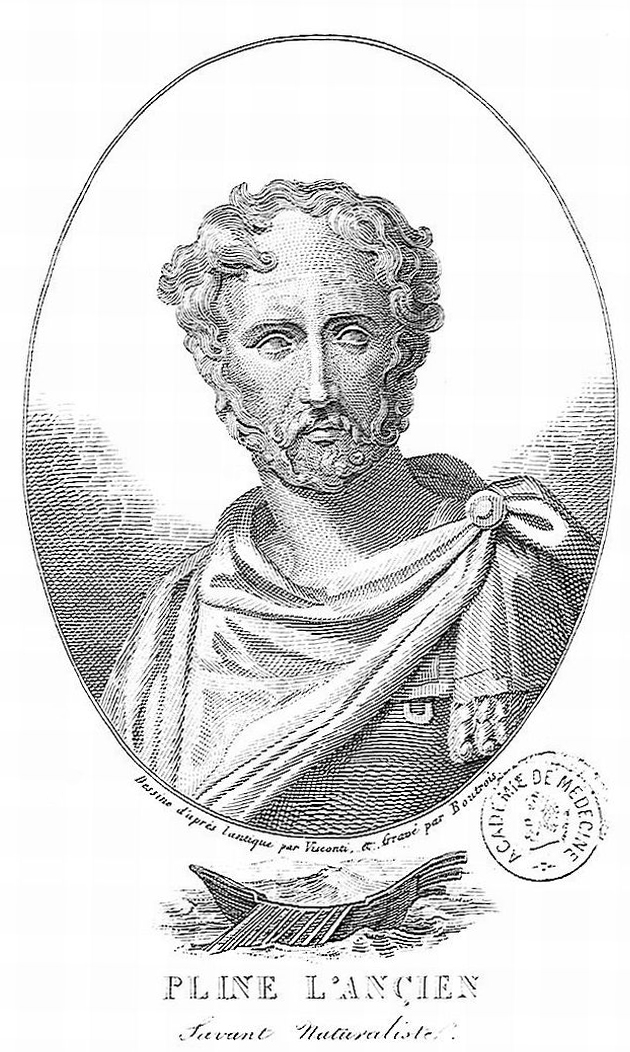 * (circumcise your heart).
* (God loves); (God's loving kindness); (remember God's wonders); (their idols became a snare); (God led the people through the wilderness); (God loves).
* (circumcise your heart).
* (God loves); (God's loving kindness); (remember God's wonders); (their idols became a snare); (God led the people through the wilderness); (God loves).
Early nonrabbinic
*Pliny the Elder. ''Natural History (Pliny), Natural History'26:3, 5
1st Century C.E. (Egyptian diseases). *Josephus. ''Antiquities of the Jews'
4:8:2–3
Circa 93–94. In, e.g., ''The Works of Josephus: Complete and Unabridged, New Updated Edition''. Translated by William Whiston. Peabody, Massachusetts: Hendrickson Publishers, 1987. . *Gospel of Matthew, Matthew (not live by bread alone).
Classical rabbinic
*Bikkurim 1:3
s:Translation:Mishnah/Seder Nezikin/Tractate Avodah Zarah/Chapter 1/9, Avodah Zarah 1:9, s:Translation:Mishnah/Seder Nezikin/Tractate Avodah Zarah/Chapter 3, 3:1–10; s:Translation:Mishnah/Seder Kodashim/Tractate Tamid/Chapter 5/1, Tamid 5:1. Land of Israel, circa 200 C.E. In, e.g., ''The Mishnah: A New Translation''. Translated by Jacob Neusner, pages 3–7, 167, 458–59, 662, 664–67, 869. New Haven: Yale University Press, 1988. . *Sifre to Deuteronomy 37:1–52:1. Land of Israel, circa 250–350 C.E. In, e.g., ''Sifre to Deuteronomy: An Analytical Translation''. Translated by Jacob Neusner. Atlanta: Scholars Press, 1987. . *Tosefta: Berakhot 1:1–2:21; 4:15; 6:1; Sotah 7:17; 8:10; Avodah Zarah 3:19; 5:6; 6:13; Zavim 5:6. Land of Israel, circa 250 CE. In, e.g., ''The Tosefta: Translated from the Hebrew, with a New Introduction''. Translated by Jacob Neusner, volume 1, pages 3–13, 25, 36, 864, 871; volume 2, pages 1273, 1280, 1285, 1898. Peabody, Massachusetts: Hendrickson Publishers, 2002. . *
8:10
70:5. Land of Israel, 5th century. In, e.g., ''Midrash Rabbah: Genesis''. Translated by Harry Freedman (rabbi), Harry Freedman and Maurice Simon, volume 1, pages 105, 175–76, 252, 255, 308, 372–73, 411–12, 415, 420, 463–64; volume 2, pages 604, 638. London: Soncino Press, 1939. .
 *Babylonian
*Babylonian Berakhot 2a–26a
Sasanian Empire, 6th Century. In, e.g., ''Talmud Bavli''. Edited by Yisroel Simcha Schorr, Chaim Malinowitz, and Mordechai Marcus, 72 volumes. Brooklyn: Mesorah Pubs., 2006. *Midrash Proverbs, chapter 23. 8th century. In, e.g., ''The Midrash on Proverbs''. Translated with an introduction and annotations by Burton Visotzky, Burton L. Visotzky, page 101. New Haven: Yale University Press, 1992. .
Medieval
*Rashi. ''Commentary''Deuteronomy 7–11
Troyes, France, late 11th Century. In, e.g., Rashi. ''The Torah: With Rashi's Commentary Translated, Annotated, and Elucidated''. Translated and annotated by Yisrael Isser Zvi Herczeg, volume 5, pages 83–118. Brooklyn: Mesorah Publications, 1997. . *Rashbam. ''Commentary on the Torah''. Troyes, early 12th century. In, e.g., ''Rashbam's Commentary on Deuteronomy: An Annotated Translation''. Edited and translated by Martin I. Lockshin, pages 69–84. Providence, Rhode Island: Brown Judaic Studies, 2004. .
 *Yehuda Halevi, Judah Halevi. ''Kuzari''. s:Kitab al Khazari/Part One, 1:97; s:Kitab al Khazari/Part Two, 2:14, 47–48, 56. Toledo, Spain, Toledo, Spain, 1130–1140. In, e.g., Jehuda Halevi. ''Kuzari: An Argument for the Faith of Israel.'' Introduction by Henry Slonimsky, pages 68–69, 89, 111–12, 119. New York: Schocken, 1964. .
*Abraham ibn Ezra. ''Commentary on the Torah''. Mid-12th century. In, e.g., ''Ibn Ezra's Commentary on the Pentateuch: Deuteronomy (Devarim)''. Translated and annotated by H. Norman Strickman and Arthur M. Silver, volume 5, pages 55–77. New York: Menorah Publishing Company, 2001. .
*Benjamin of Tudela.
*Yehuda Halevi, Judah Halevi. ''Kuzari''. s:Kitab al Khazari/Part One, 1:97; s:Kitab al Khazari/Part Two, 2:14, 47–48, 56. Toledo, Spain, Toledo, Spain, 1130–1140. In, e.g., Jehuda Halevi. ''Kuzari: An Argument for the Faith of Israel.'' Introduction by Henry Slonimsky, pages 68–69, 89, 111–12, 119. New York: Schocken, 1964. .
*Abraham ibn Ezra. ''Commentary on the Torah''. Mid-12th century. In, e.g., ''Ibn Ezra's Commentary on the Pentateuch: Deuteronomy (Devarim)''. Translated and annotated by H. Norman Strickman and Arthur M. Silver, volume 5, pages 55–77. New York: Menorah Publishing Company, 2001. .
*Benjamin of Tudela. The Itinerary of Benjamin of Tudela
'. Spain, 1173. In ''The Itinerary of Benjamin of Tudela: Travels in the Middle Ages''. Introductions by Michael A. Singer, Marcus Nathan Adler, A. Asher, page 91. Malibu, California: Joseph Simon, 1983. . (Anak). *Maimonides. ''Mishneh Torah''
''Hilchot De'ot (The Laws of Personality Development)'', chapter 1, halachah 4
[http://www.chabad.org/library/article_cdo/aid/910975/jewish/Talmud-Torah-Chapter-Three.htm chapter 3, halachot 5, 13]. Egypt, circa 1170–1180. In, e.g., ''Mishneh Torah: Hilchot De'ot: The Laws of Personality Development: and Hilchot Talmud Torah: The Laws of Torah Study''. Translated by Za'ev Abramson and Eliyahu Touger, volume 2, pages 18–23, 36–43, 118–23, 158–59, 168–70, 164–65, 192–95, 206–09. New York: Moznaim Publishing, 1989. (1991).
 *Maimonides. ''Mishneh Torah''
*Maimonides. ''Mishneh Torah''''Hilchot Avodat Kochavim V'Chukkoteihem (The Laws of the Worship of Stars and their Statutes)'', chapter 2, halachah 1
Egypt, circa 1170–1180. In, e.g., ''Mishneh Torah: Hilchot Avodat Kochavim V'Chukkoteihem: The Laws of the Worship of Stars and their Statutes''.Translated by Eliyahu Touger, volume 3, pages 30–33, 112–45, 158–59, 190–93. New York: Moznaim Publishing, 1990. . *Maimonides. ''Mishneh Torah''
[http://www.chabad.org/library/article_cdo/aid/911898/jewish/Teshuvah-Chapter-Four.htm chapter 4, halachah 2]
chapter 9, halachah 1
Egypt, circa 1170–1180. In, e.g., ''Mishneh Torah: Hilchot Teshuvah: The Laws of Repentance''. Translated by Eliyahu Touger, volume 4, pages 50–55, 96–103, 200–11, 224–27. New York: Moznaim Publishing, 1990. . *Maimonides. ''Mishneh Torah''
[http://www.chabad.org/library/article_cdo/aid/912953/jewish/Kriat-Shema-Chapter-Two.htm chapter 2, halachah 9]
''Hilchot Tefilah (The Laws of Prayer)'', chapter 1, halachah 1
Egypt, circa 1170–1180. In, e.g., ''Mishneh Torah: Hilchot Kri'at Shema: The Laws of Kri'at Shema: and Hilchot Tefilah [I]: The Laws of Prayer''. Translated by Eliyahu Touger, volume 5, pages 12–15, 40–43, 96–98, 180–83, 198–201. New York: Moznaim Publishing, 1989. *Maimonides. ''Mishneh Torah''
''Hilchot Tefilah (The Laws of Prayer)'', chapter 7, halachah 14
Egypt, circa 1170–1180. In, e.g., ''Mishneh Torah: Tefilah [II]: and Birkat Kohanim: The Laws of Prayer and the Priestly Blessing''. Translated by Eliyahu Touger, volume 6, pages 34–37, 72–75, 144–47, 188–89, 204–07, 212–15. New York: Moznaim Publishing, 1989. *Maimonides. ''Mishneh Torah''
''Hilchot Tefillin UMezuzah V'Sefer Torah (The Laws (Governing) Tefillin, Mezuzah, and Torah Scrolls)'', chapter 1, halachot 1–2
Egypt, circa 1170–1180. In, e.g., ''Mishneh Torah: Hilchot Tefillin UMezuzah V'Sefer Torah: The Laws (Governing) Tefillin, Mezuzah, and Torah Scrolls: and Hilchot Tzitzit: The Laws of Tzitzit''. Translated by Eliyahu Touger, volume 7, pages 12–14, 38–41, 44–47, 54–57, 102–05. New York: Moznaim Publishing, 1990. *Maimonides. ''Mishneh Torah''
[http://www.chabad.org/library/article_cdo/aid/927670/jewish/Berachot-Chapter-Two.htm chapter 2, halachot 1, 3]
chapter 3, halachah 1
Egypt, circa 1170–1180. In, e.g., ''Mishneh Torah: Hilchot Berachot: The Laws of Blessing: and Hilchot Milah: The Laws of Circumcision''. Translated by Eliyahu Touger, volume 8, pages 12–13, 34–41, 54–57, 84–85, 92–93, 122–23, 130–35, 142–43. New York: Moznaim Publishing, 1991. *Maimonides. ''The Guide for the Perplexed'', part 1, chapters s:The Guide for the Perplexed (Friedlander)/Part I#CHAPTER XXXVI, 36–s:The Guide for the Perplexed (Friedlander)/Part I#CHAPTER XXXVII, 37, s:The Guide for the Perplexed (Friedlander)/Part I#CHAPTER XLIV, 44; part 2, chapters s:Page:Guideforperplexed.djvu/231, 9, s:Page:Guideforperplexed.djvu/300, 39; part 3, chapters s:Page:Guideforperplexed.djvu/356, 17, s:Page:Guideforperplexed.djvu/374, 24, s:Page:Guideforperplexed.djvu/384, 28–s:Page:Guideforperplexed.djvu/388, 29, s:Page:Guideforperplexed.djvu/393, 32–s:Page:Guideforperplexed.djvu/397, 33, s:Page:Guideforperplexed.djvu/405, 37, s:Page:Guideforperplexed.djvu/410, 39, s:Page:Guideforperplexed.djvu/452, 50–s:Page:Guideforperplexed.djvu/456, 51. Cairo, Egypt, 1190. In, e.g., Moses Maimonides. ''The Guide for the Perplexed''. Translated by Michael Friedländer, pages 50, 53, 58, 163, 232, 286, 304–05, 314, 318, 320, 323, 325, 327, 335–36, 340, 382, 386. New York: Dover Publications, 1956. . *Hezekiah ben Manoah. ''Hizkuni''. France, circa 1240. In, e.g., Chizkiyahu ben Manoach. ''Chizkuni: Torah Commentary''. Translated and annotated by Eliyahu Munk, volume 4, pages 1083–94. Jerusalem: Ktav Publishers, 2013. .
 *Nahmanides, Nachmanides. ''Commentary on the Torah''. Jerusalem, circa 1270. In, e.g., ''Ramban (Nachmanides): Commentary on the Torah: Deuteronomy.'' Translated by Charles B. Chavel, volume 5, pages 94–138. New York: Shilo Publishing House, 1976. .
*Zohar part 3, pages 270a–. Spain, late 13th Century. In, e.g., ''The Zohar''. Translated by Harry Sperling and Maurice Simon. 5 volumes. London: Soncino Press, 1934.
*Bahya ben Asher. ''Commentary on the Torah''. Spain, early 14th century. In, e.g., ''Midrash Rabbeinu Bachya: Torah Commentary by Rabbi Bachya ben Asher''. Translated and annotated by Eliyahu Munk, volume 7, pages 2445–99. Jerusalem: Lambda Publishers, 2003. .
*Isaac ben Moses Arama. ''Akedat Yizhak (The Binding of Isaac)''. Late 15th century. In, e.g., Yitzchak Arama. ''Akeydat Yitzchak: Commentary of Rabbi Yitzchak Arama on the Torah''. Translated and condensed by Eliyahu Munk, volume 2, pages 821–35. New York, Lambda Publishers, 2001. .
*Nahmanides, Nachmanides. ''Commentary on the Torah''. Jerusalem, circa 1270. In, e.g., ''Ramban (Nachmanides): Commentary on the Torah: Deuteronomy.'' Translated by Charles B. Chavel, volume 5, pages 94–138. New York: Shilo Publishing House, 1976. .
*Zohar part 3, pages 270a–. Spain, late 13th Century. In, e.g., ''The Zohar''. Translated by Harry Sperling and Maurice Simon. 5 volumes. London: Soncino Press, 1934.
*Bahya ben Asher. ''Commentary on the Torah''. Spain, early 14th century. In, e.g., ''Midrash Rabbeinu Bachya: Torah Commentary by Rabbi Bachya ben Asher''. Translated and annotated by Eliyahu Munk, volume 7, pages 2445–99. Jerusalem: Lambda Publishers, 2003. .
*Isaac ben Moses Arama. ''Akedat Yizhak (The Binding of Isaac)''. Late 15th century. In, e.g., Yitzchak Arama. ''Akeydat Yitzchak: Commentary of Rabbi Yitzchak Arama on the Torah''. Translated and condensed by Eliyahu Munk, volume 2, pages 821–35. New York, Lambda Publishers, 2001. .
Modern
*Isaac Abravanel. ''Commentary on the Torah''. Italy, between 1492 and 1509. In, e.g., ''Abarbanel: Selected Commentaries on the Torah: Volume 5: Devarim/Deuteronomy''. Translated and annotated by Israel Lazar, pages 46–63. Brooklyn: CreateSpace, 2015. . *Obadiah ben Jacob Sforno. ''Commentary on the Torah''. Venice, 1567. In, e.g., ''Sforno: Commentary on the Torah''. Translation and explanatory notes by Raphael Pelcovitz, pages 870–91. Brooklyn: Mesorah Publications, 1997. .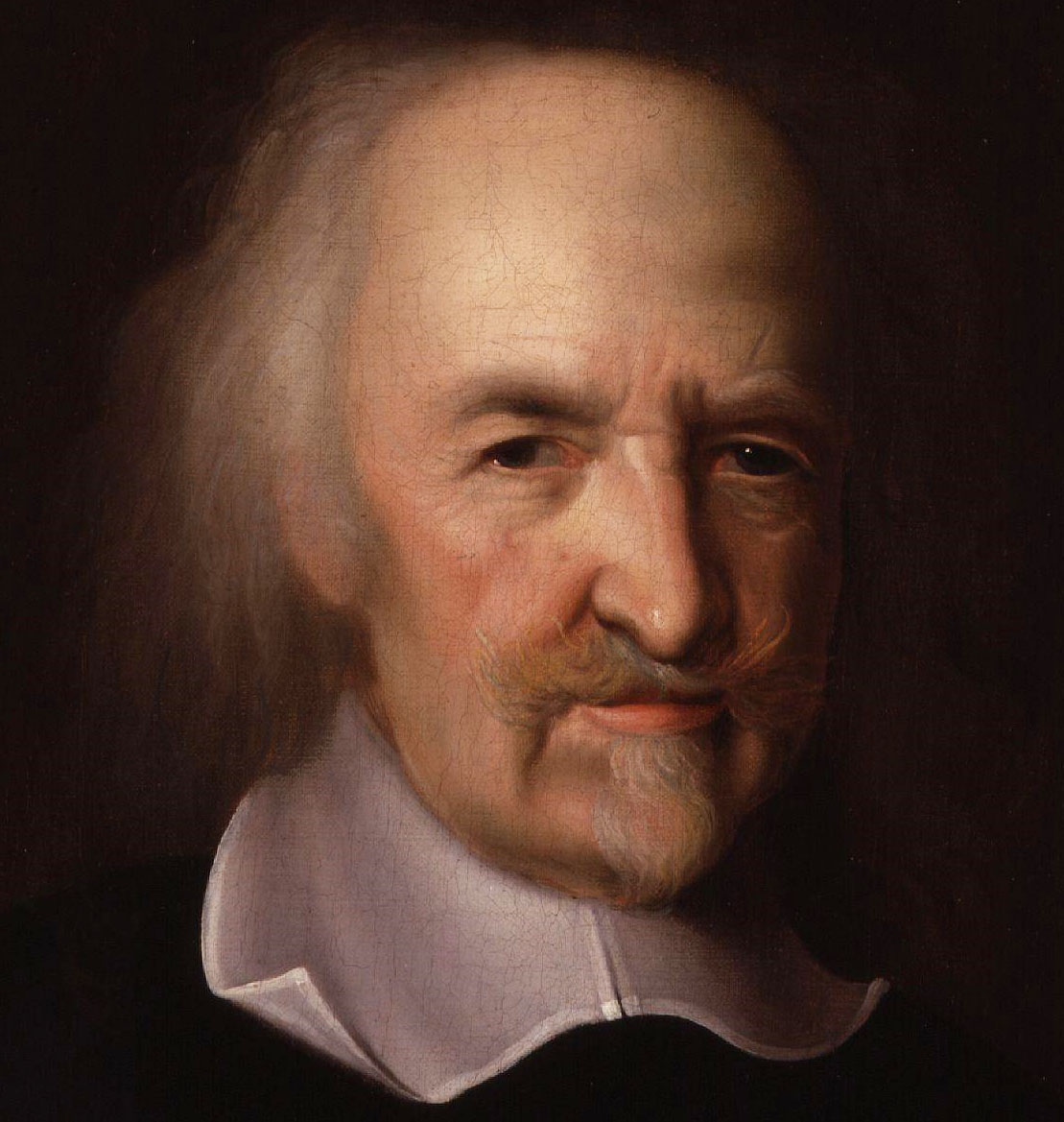 *Moshe Alshich. ''Commentary on the Torah''. Safed, circa 1593. In, e.g., Moshe Alshich. ''Midrash of Rabbi Moshe Alshich on the Torah''. Translated and annotated by Eliyahu Munk, volume 3, pages 993–1016. New York, Lambda Publishers, 2000. .
*Thomas Hobbes. ''Leviathan (Hobbes book), Leviathan'', s:Leviathan/The Second Part#Chapter XXVI: Of Civil Laws, 2:26; s:Leviathan/The Third Part#Chapter XL: Of the Rights of the Kingdom of God, in Abraham, Moses, the High Priests, and the Kings of Judah, 3:40; s:Leviathan/The Fourth Part#Chapter XLV: Of Demonology and Other Relics of the Religion of the Gentiles, 4:45. England, 1651. Reprint edited by C. B. Macpherson, pages 319, 504–05, 672, 676–77. Harmondsworth, England: Penguin Classics, 1982. .
*Moshe Alshich. ''Commentary on the Torah''. Safed, circa 1593. In, e.g., Moshe Alshich. ''Midrash of Rabbi Moshe Alshich on the Torah''. Translated and annotated by Eliyahu Munk, volume 3, pages 993–1016. New York, Lambda Publishers, 2000. .
*Thomas Hobbes. ''Leviathan (Hobbes book), Leviathan'', s:Leviathan/The Second Part#Chapter XXVI: Of Civil Laws, 2:26; s:Leviathan/The Third Part#Chapter XL: Of the Rights of the Kingdom of God, in Abraham, Moses, the High Priests, and the Kings of Judah, 3:40; s:Leviathan/The Fourth Part#Chapter XLV: Of Demonology and Other Relics of the Religion of the Gentiles, 4:45. England, 1651. Reprint edited by C. B. Macpherson, pages 319, 504–05, 672, 676–77. Harmondsworth, England: Penguin Classics, 1982. .
 *Moshe Chaim Luzzatto. ''Mesillat Yesharim'', introduction. Amsterdam, 1740. In ''Mesillat Yesharim: The Path of the Just'', pages 9–13. Jerusalem: Feldheim, 1966. . (Interpreting ).
*Chaim ibn Attar. ''Ohr ha-Chaim''. Venice, 1742. In Chayim ben Attar. ''Or Hachayim: Commentary on the Torah''. Translated by Eliyahu Munk, volume 5, pages 1818–43. Brooklyn: Lambda Publishers, 1999. .
*Samson Raphael Hirsch. ''Horeb: A Philosophy of Jewish Laws and Observances''. Translated by Isidore Grunfeld, pages 35–43, 47–50, 175–80, 187–89, 376–77, 406–16, 448–52, 471–78, 525–30, 544–47, 565–67. London: Soncino Press, 1962. Reprinted 2002 . Originally published as ''Horeb, Versuche über Jissroel's Pflichten in der Zerstreuung''. Germany, 1837.
*Moshe Chaim Luzzatto. ''Mesillat Yesharim'', introduction. Amsterdam, 1740. In ''Mesillat Yesharim: The Path of the Just'', pages 9–13. Jerusalem: Feldheim, 1966. . (Interpreting ).
*Chaim ibn Attar. ''Ohr ha-Chaim''. Venice, 1742. In Chayim ben Attar. ''Or Hachayim: Commentary on the Torah''. Translated by Eliyahu Munk, volume 5, pages 1818–43. Brooklyn: Lambda Publishers, 1999. .
*Samson Raphael Hirsch. ''Horeb: A Philosophy of Jewish Laws and Observances''. Translated by Isidore Grunfeld, pages 35–43, 47–50, 175–80, 187–89, 376–77, 406–16, 448–52, 471–78, 525–30, 544–47, 565–67. London: Soncino Press, 1962. Reprinted 2002 . Originally published as ''Horeb, Versuche über Jissroel's Pflichten in der Zerstreuung''. Germany, 1837.
 *George Eliot. ''Adam Bede'', s:Adam Bede/Chapter VIII, chapter 8. Edinburgh and London: William Blackwood and Sons, 1859. Reprinted, e.g., edited by Carol A. Martin, page 81. Oxford: Oxford University Press, 2008. (echoing , Dinah describes Hayslope as “a good land, wherein they eat bread without scarceness.”).
*Samuel David Luzzatto (Shadal). ''Commentary on the Torah.'' Padua, 1871. In, e.g., Samuel David Luzzatto. ''Torah Commentary''. Translated and annotated by Eliyahu Munk, volume 4, pages 1174–82. New York: Lambda Publishers, 2012. .
*George Eliot. ''Adam Bede'', s:Adam Bede/Chapter VIII, chapter 8. Edinburgh and London: William Blackwood and Sons, 1859. Reprinted, e.g., edited by Carol A. Martin, page 81. Oxford: Oxford University Press, 2008. (echoing , Dinah describes Hayslope as “a good land, wherein they eat bread without scarceness.”).
*Samuel David Luzzatto (Shadal). ''Commentary on the Torah.'' Padua, 1871. In, e.g., Samuel David Luzzatto. ''Torah Commentary''. Translated and annotated by Eliyahu Munk, volume 4, pages 1174–82. New York: Lambda Publishers, 2012. .
 *Yehudah Aryeh Leib Alter. ''Sefat Emet''. Góra Kalwaria (Ger), Poland, before 1906. Excerpted in ''The Language of Truth: The Torah Commentary of Sefat Emet''. Translated and interpreted by Arthur Green, pages 295–99. Philadelphia: Jewish Publication Society, 1998. . Reprinted 2012. .
*Abraham Isaac Kook. ''The Moral Principles''. Early 20th Century. In ''Abraham Isaac Kook: the Lights of Penitence, the Moral Principles, Lights of Holiness, Essays, Letters, and Poems''. Translated by Ben Zion Bokser, page 176. Mahwah, N.J.: Paulist Press 1978. .
*Yehudah Aryeh Leib Alter. ''Sefat Emet''. Góra Kalwaria (Ger), Poland, before 1906. Excerpted in ''The Language of Truth: The Torah Commentary of Sefat Emet''. Translated and interpreted by Arthur Green, pages 295–99. Philadelphia: Jewish Publication Society, 1998. . Reprinted 2012. .
*Abraham Isaac Kook. ''The Moral Principles''. Early 20th Century. In ''Abraham Isaac Kook: the Lights of Penitence, the Moral Principles, Lights of Holiness, Essays, Letters, and Poems''. Translated by Ben Zion Bokser, page 176. Mahwah, N.J.: Paulist Press 1978. .
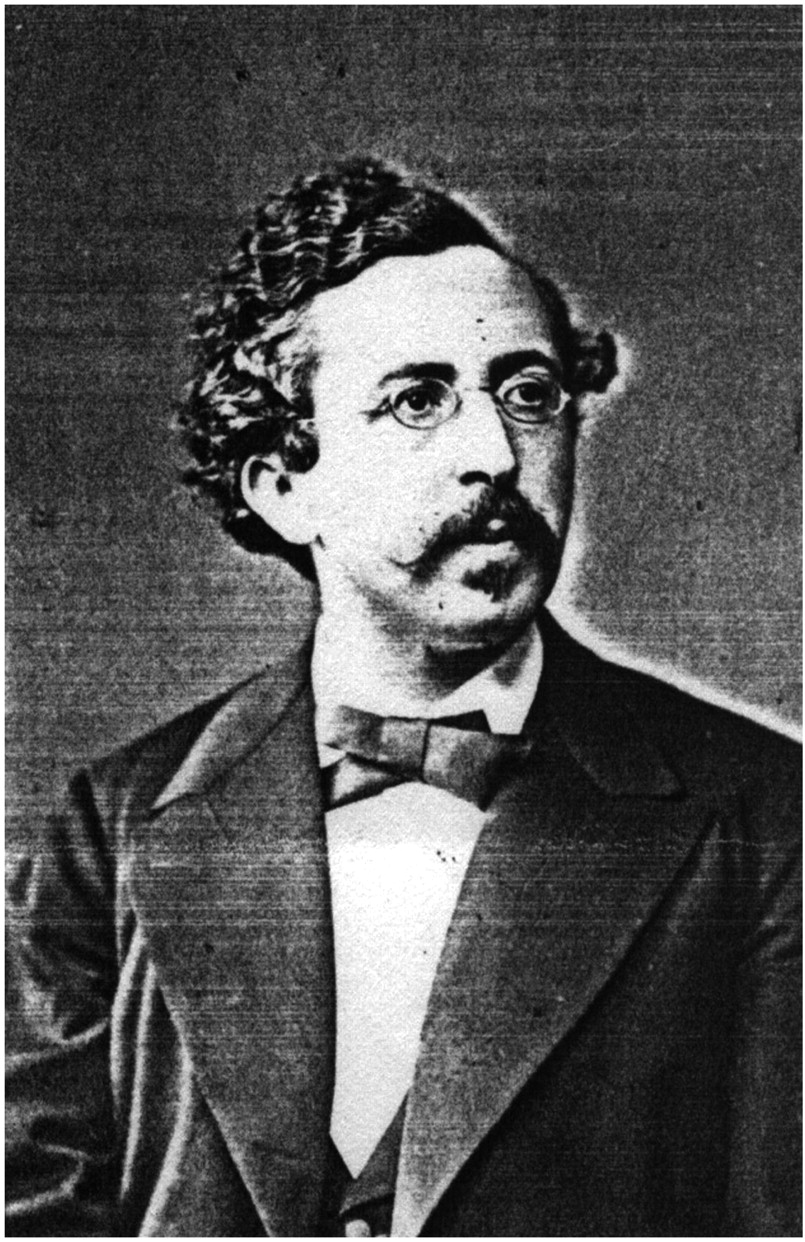 *Hermann Cohen. ''Religion of Reason: Out of the Sources of Judaism''. Translated with an introduction by Simon Kaplan; introductory essays by Leo Strauss, pages 79, 127, 145, 263, 382. New York: Ungar, 1972. Reprinted Atlanta: Scholars Press, 1995. . Originally published as ''Religion der Vernunft aus den Quellen des Judentums''. Leipzig: Gustav Fock, 1919.
*Alexander Alan Steinbach. ''Sabbath Queen: Fifty-four Bible Talks to the Young Based on Each Portion of the Pentateuch'', pages 145–48. New York: Behrman's Jewish Book House, 1936.
*Joseph Reider. ''The Holy Scriptures: Deuteronomy with Commentary'', pages 84–115. Philadelphia: Jewish Publication Society, 1937.
*Thomas Mann. ''Joseph and His Brothers''. Translated by John E. Woods (translator), John E. Woods, page 788. New York: Alfred A. Knopf, 2005. . Originally published as ''Joseph und seine Brüder''. Stockholm: Bermann-Fischer Verlag, 1943.
*Abraham Joshua Heschel. ''Man's Quest for God: Studies in Prayer and Symbolism'', page 36. New York: Charles Scribner's Sons, 1954.
*Hermann Cohen. ''Religion of Reason: Out of the Sources of Judaism''. Translated with an introduction by Simon Kaplan; introductory essays by Leo Strauss, pages 79, 127, 145, 263, 382. New York: Ungar, 1972. Reprinted Atlanta: Scholars Press, 1995. . Originally published as ''Religion der Vernunft aus den Quellen des Judentums''. Leipzig: Gustav Fock, 1919.
*Alexander Alan Steinbach. ''Sabbath Queen: Fifty-four Bible Talks to the Young Based on Each Portion of the Pentateuch'', pages 145–48. New York: Behrman's Jewish Book House, 1936.
*Joseph Reider. ''The Holy Scriptures: Deuteronomy with Commentary'', pages 84–115. Philadelphia: Jewish Publication Society, 1937.
*Thomas Mann. ''Joseph and His Brothers''. Translated by John E. Woods (translator), John E. Woods, page 788. New York: Alfred A. Knopf, 2005. . Originally published as ''Joseph und seine Brüder''. Stockholm: Bermann-Fischer Verlag, 1943.
*Abraham Joshua Heschel. ''Man's Quest for God: Studies in Prayer and Symbolism'', page 36. New York: Charles Scribner's Sons, 1954.
 *Bob Dylan. "Gates of Eden (song), Gates of Eden." In ''Bringing It All Back Home''. Columbia Records, 1965. ("Aladdin and his lamp sits with Utopian hermit monks side saddle on the Golden Calf").
*Martin Buber. ''On the Bible: Eighteen studies'', pages 80–92. New York: Schocken Books, 1968.
*Peter Craigie, Peter C. Craigie. ''The Problem of War in the Old Testament'', pages 45, 47. Grand Rapids, Michigan: William B. Eerdmans Publishing Company, 1978. .
*Nechama Leibowitz, Nehama Leibowitz. ''Studies in Devarim: Deuteronomy'', pages 85–119. Jerusalem: World Zionist Organization, 1980.
*Lyle Eslinger
*Bob Dylan. "Gates of Eden (song), Gates of Eden." In ''Bringing It All Back Home''. Columbia Records, 1965. ("Aladdin and his lamp sits with Utopian hermit monks side saddle on the Golden Calf").
*Martin Buber. ''On the Bible: Eighteen studies'', pages 80–92. New York: Schocken Books, 1968.
*Peter Craigie, Peter C. Craigie. ''The Problem of War in the Old Testament'', pages 45, 47. Grand Rapids, Michigan: William B. Eerdmans Publishing Company, 1978. .
*Nechama Leibowitz, Nehama Leibowitz. ''Studies in Devarim: Deuteronomy'', pages 85–119. Jerusalem: World Zionist Organization, 1980.
*Lyle Eslinger“Watering Egypt (Deuteronomy XI 10–11).”
''Vetus Testamentum'', volume 37, number 1) (January 1987): pages 85–90. *Pinchas Hacohen Peli, Pinchas H. Peli. ''Torah Today: A Renewed Encounter with Scripture'', pages 209–12. Washington, D.C.: B'nai B'rith Books, 1987. . *George G. Nicol
“Watering Egypt (Deuteronomy XI 10–11) Again.”
''Vetus Testamentum'', volume 38, number 3 (July 1988): pages 347–48. *Patrick D. Miller. ''Deuteronomy'', pages 110–28. Louisville, Kentucky, Louisville: Westminster John Knox Press, John Knox Press, 1990. *Robert H. O'Connell
“Deuteronomy VIII 1–20: Asymmetrical Concentricity and the Rhetoric of Providence.”
''Vetus Testamentum'', volume 40, number 4 (October 1990): pages 437–52. *Mark S. Smith. ''The Early History of God: Yahweh and the Other Deities in Ancient Israel'', pages 18, 152. New York: HarperSanFrancisco, 1990. . *Philip D. Stern. ''The Biblical Herem: A Window on Israel's Religious Experience''. Atlanta: Scholars Press, 1991. . *Moshe Weinfeld. ''Deuteronomy 1–11'', volume 5, pages 357–455. New York: Anchor Bible Series, Anchor Bible, 1991. . *Robert H. O'Connell
“Deuteronomy VII 1–26: Asymmetrical Concentricity and the Rhetoric of Conquest.”
''Vetus Testamentum'', volume 42, number 2 (April 1992): pages 248–65. *Robert H. O'Connell
“Deuteronomy IX 7–X 7, 10–11: Panelled Structure, Double Rehearsal and the Rhetoric of Covenant Rebuke.”
''Vetus Testamentum'', volume 42, number 4 (October 1992): pages 492–509. *Joel Roth
"Homosexuality."
New York: Rabbinical Assembly, 1992. EH 24.1992b. In ''Responsa: 1991–2000: The Committee on Jewish Law and Standards of the Conservative Movement''. Edited by Kassel Abelson and David J. Fine, pages 613, 615. New York: Rabbinical Assembly, 2002. . (interpreting the term "abhorrence"). *''A Song of Power and the Power of Song: Essays on the Book of Deuteronomy''. Edited by Duane L. Christensen. Winona Lake, Indiana: Eisenbrauns, 1993. . *Elliot N. Dorff
"Artificial Insemination, Egg Donation and Adoption."
New York: Rabbinical Assembly, 1994. EH 1:3.1994. In ''Responsa: 1991–2000: The Committee on Jewish Law and Standards of the Conservative Movement''. Edited by Kassel Abelson and David J. Fine, pages 461, 462, 464. New York: Rabbinical Assembly, 2002. . (children among life's chief goods). *Neil Gillman. ''Sacred Fragments: Recovering Theology for the Modern Jew'', pages xxiv-xxv. Philadelphia: Jewish Publication Society, 1994. . (arguing that for many Jews, the traditional images that characterized Judaism are like the irreparably shattered Tablets, and modern Jews must carve out their new set of interpretations, without discarding the old). *Judith S. Antonelli. "The Asherah." In ''In the Image of God: A Feminist Commentary on the Torah'', pages 416–27. Northvale, New Jersey: Jason Aronson, 1995. . *Jacob Milgrom. "‘The Alien in Your Midst': Every nation has its ger: the permanent resident. The Torah commands us, first, not to oppress the ger, and then to befriend and love him." ''Bible Review'', volume 11, number 6 (December 1995). *Ellen Frankel. ''The Five Books of Miriam: A Woman’s Commentary on the Torah'', pages 258–60. New York: G. P. Putnam's Sons, 1996. .
 *Jack R. Lundbom
*Jack R. Lundbom“The Inclusio and Other Framing Devices in Deuteronomy I–XXVIII.”
''Vetus Testamentum'', volume 46, number 3 (July 1996): pages 296–315. *Gunther Plaut, W. Gunther Plaut. ''The Haftarah Commentary'', pages 451–62. New York: UAHC Press, 1996. . *Jeffrey H. Tigay. ''The JPS Torah Commentary: Deuteronomy: The Traditional Hebrew Text with the New JPS Translation'', pages 88–115, 438–46. Philadelphia: Jewish Publication Society, 1996. . *Elliot N. Dorff
"Assisted Suicide."
New York: Rabbinical Assembly, 1997. YD 345.1997a. In ''Responsa: 1991–2000: The Committee on Jewish Law and Standards of the Conservative Movement''. Edited by Kassel Abelson and David J. Fine, pages 379, 380. New York: Rabbinical Assembly, 2002. . (implications for assisted suicide of God's ownership of the universe). *Sorel Goldberg Loeb and Barbara Binder Kadden. ''Teaching Torah: A Treasury of Insights and Activities'', pages 304–09. Denver: A.R.E. Publishing, 1997. . *"Sh'ma." In ''My People's Prayer Book: Traditional Prayers, Modern Commentaries: The Sh'ma and Its Blessings''. Edited by Lawrence A. Hoffman, volume 1, pages 83–116. Woodstock, Vermont: Jewish Lights Publishing, 1997. . *Elie Kaplan Spitz
"On the Use of Birth Surrogates."
New York: Rabbinical Assembly, 1997. EH 1:3.1997b. In ''Responsa: 1991–2000: The Committee on Jewish Law and Standards of the Conservative Movement''. Edited by Kassel Abelson and David J. Fine, pages 529, 536. New York: Rabbinical Assembly, 2002. . (promise of abundant offspring). *Susan Freeman. ''Teaching Jewish Virtues: Sacred Sources and Arts Activities'', pages 8–25, 332–46. Springfield Township, Union County, New Jersey, Springfield, New Jersey: A.R.E. Publishing, 1999. . ( ). *Richard D. Nelson. “Deuteronomy.” In ''The HarperCollins Bible Commentary''. Edited by James Luther Mays, James L. Mays, pages 195–96, 198–200. New York: HarperCollins Publishers, revised edition, 2000. . *Gila Colman Ruskin. "Circumcision, Womb, and Spiritual Intimacy." In ''The Women's Torah Commentary: New Insights from Women Rabbis on the 54 Weekly Torah Portions''. Edited by Elyse Goldstein, pages 345–50. Woodstock, Vermont: Jewish Lights Publishing, 2000. . *Walter Brueggemann. ''Abingdon Old Testament Commentaries: Deuteronomy'', pages 93–141. Nashville, Tennessee: Abingdon Press, 2001. . *Lainie Blum Cogan and Judy Weiss. ''Teaching Haftarah: Background, Insights, and Strategies'', pages 295–303. Denver: A.R.E. Publishing, 2002. . *Michael Fishbane. ''The JPS Bible Commentary: Haftarot'', pages 284–91. Philadelphia: Jewish Publication Society, 2002. . *Robert Alter. ''The Five Books of Moses: A Translation with Commentary'', pages 918–38. New York: W.W. Norton & Co., 2004. . *Lynne A. Kern. “Haftarat Ekev: Isaiah 49:14–51:3.” In ''The Women's Haftarah Commentary: New Insights from Women Rabbis on the 54 Weekly Haftarah Portions, the 5 Megillot & Special Shabbatot''. Edited by Elyse Goldstein, pages 221–26. Woodstock, Vermont: Jewish Lights Publishing, 2004. . *Bernard M. Levinson. "Deuteronomy." In ''The Jewish Study Bible''. Edited by Adele Berlin and Marc Zvi Brettler, pages 383–90. New York: Oxford University Press, 2004. . *''Professors on the Parashah: Studies on the Weekly Torah Reading'' Edited by Leib Moscovitz, pages 311–13. Jerusalem: Urim Publications, 2005. . *W. Gunther Plaut. ''The Torah: A Modern Commentary: Revised Edition''. Revised edition edited by David E. Stern, David E.S. Stern, pages 1226–54. New York: Union for Reform Judaism, 2006. . *Suzanne A. Brody. "Fall-able." In ''Dancing in the White Spaces: The Yearly Torah Cycle and More Poems'', page 104. Shelbyville, Kentucky: Wasteland Press, 2007. .
 *Esther Jungreis. ''Life Is a Test'', pages 18, 128, 208, 261–62. Brooklyn: Shaar Press, 2007. .
*James Kugel, James L. Kugel. ''How To Read the Bible: A Guide to Scripture, Then and Now'', pages 193, 246, 311, 313, 333, 353–55, 369, 532, 621, 685. New York: Free Press, 2007. .
*Dmitri Slivniak
*Esther Jungreis. ''Life Is a Test'', pages 18, 128, 208, 261–62. Brooklyn: Shaar Press, 2007. .
*James Kugel, James L. Kugel. ''How To Read the Bible: A Guide to Scripture, Then and Now'', pages 193, 246, 311, 313, 333, 353–55, 369, 532, 621, 685. New York: Free Press, 2007. .
*Dmitri Slivniak“The Golden Calf Story: Constructively and Deconstructively.”
''Journal for the Study of the Old Testament'', volume 33, number 1 (September 2008): pages 19–38. *''The Torah: A Women's Commentary''. Edited by Tamara Cohn Eskenazi and Andrea Weiss (rabbi), Andrea L. Weiss, pages 1089–114. New York: Union for Reform Judaism, URJ Press, 2008. . *Eugene E. Carpenter. "Deuteronomy." In ''Zondervan Illustrated Bible Backgrounds Commentary''. Edited by John H. Walton, volume 1, pages 463–69. Grand Rapids, Michigan: Zondervan, 2009. .
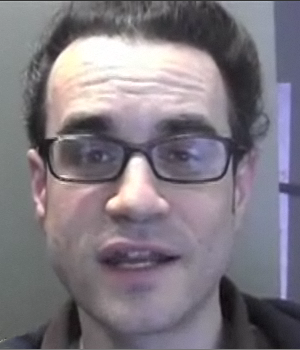 *Ari Lev Fornari. "Bind These Words: Parashat Ekev (Deuteronomy 7:12–11:25)." In ''Torah Queeries: Weekly Commentaries on the Hebrew Bible''. Edited by Gregg Drinkwater, Joshua Lesser, and David Shneer; foreword by Judith Plaskow, pages 240–45. New York: New York University Press, 2009. .
*Jonathan Goldstein (author), Jonathan Goldstein. "The Golden Calf." In ''Ladies and Gentlemen, the Bible!'' pages 115–28. New York: Riverhead Books, 2009. .
*Reuven Hammer. ''Entering Torah: Prefaces to the Weekly Torah Portion'', pages 263–67. New York: Gefen Publishing House, 2009. .
*Idan Dershowitz
*Ari Lev Fornari. "Bind These Words: Parashat Ekev (Deuteronomy 7:12–11:25)." In ''Torah Queeries: Weekly Commentaries on the Hebrew Bible''. Edited by Gregg Drinkwater, Joshua Lesser, and David Shneer; foreword by Judith Plaskow, pages 240–45. New York: New York University Press, 2009. .
*Jonathan Goldstein (author), Jonathan Goldstein. "The Golden Calf." In ''Ladies and Gentlemen, the Bible!'' pages 115–28. New York: Riverhead Books, 2009. .
*Reuven Hammer. ''Entering Torah: Prefaces to the Weekly Torah Portion'', pages 263–67. New York: Gefen Publishing House, 2009. .
*Idan Dershowitz“A Land Flowing with Fat and Honey.”
''Vetus Testamentum'', volume 60, number 2 (2010): pages 172–76. *Julie Cadwallader-Staub.
Joy
'. In ''Face to Face: A Poetry Collection''. DreamSeeker Books, 2010. . ("land of milk and honey"). *Bill T. Arnold
“The Love-Fear Antinomy in Deuteronomy 5–11.”
''Vetus Testamentum'', volume 61, number 4 (2011): pages 551–69.
 *William G. Dever. ''The Lives of Ordinary People in Ancient Israel: When Archaeology and the Bible Intersect'', pages 43, 46, 192–93. Grand Rapids, Michigan: William B. Eerdmans Publishing Company, 2012. .
*Shmuel Herzfeld. "The Fragile Relationship." In ''Fifty-Four Pick Up: Fifteen-Minute Inspirational Torah Lessons'', pages 262–67. Jerusalem: Gefen Publishing House, 2012. .
*Jaclyn Neel
*William G. Dever. ''The Lives of Ordinary People in Ancient Israel: When Archaeology and the Bible Intersect'', pages 43, 46, 192–93. Grand Rapids, Michigan: William B. Eerdmans Publishing Company, 2012. .
*Shmuel Herzfeld. "The Fragile Relationship." In ''Fifty-Four Pick Up: Fifteen-Minute Inspirational Torah Lessons'', pages 262–67. Jerusalem: Gefen Publishing House, 2012. .
*Jaclyn Neel“Diodorus, Deuteronomy, and Egyptian Agriculture.”
''Vetus Testamentum'', volume 62, number 4 (2012): pages 646–51.
 *Jonathan Cohen. “Keeping the balance: Between self-congratulation and self-criticism.” ''The Jerusalem Report'', volume 25, number 10 (August 25, 2014): page 47.
*Shlomo Riskin. ''Torah Lights: Devarim: Moses Bequeaths Legacy, History, and Covenant'', pages 75–105. New Milford, Connecticut: Maggid Books, 2014. .
*''The Commentators' Bible: The Rubin JPS Miqra'ot Gedolot: Deuteronomy.'' Edited, translated, and annotated by Michael Carasik, pages 56–81. Philadelphia: Jewish Publication Society, 2015. .
*Jonathan Cohen. “Keeping the balance: Between self-congratulation and self-criticism.” ''The Jerusalem Report'', volume 25, number 10 (August 25, 2014): page 47.
*Shlomo Riskin. ''Torah Lights: Devarim: Moses Bequeaths Legacy, History, and Covenant'', pages 75–105. New Milford, Connecticut: Maggid Books, 2014. .
*''The Commentators' Bible: The Rubin JPS Miqra'ot Gedolot: Deuteronomy.'' Edited, translated, and annotated by Michael Carasik, pages 56–81. Philadelphia: Jewish Publication Society, 2015. .
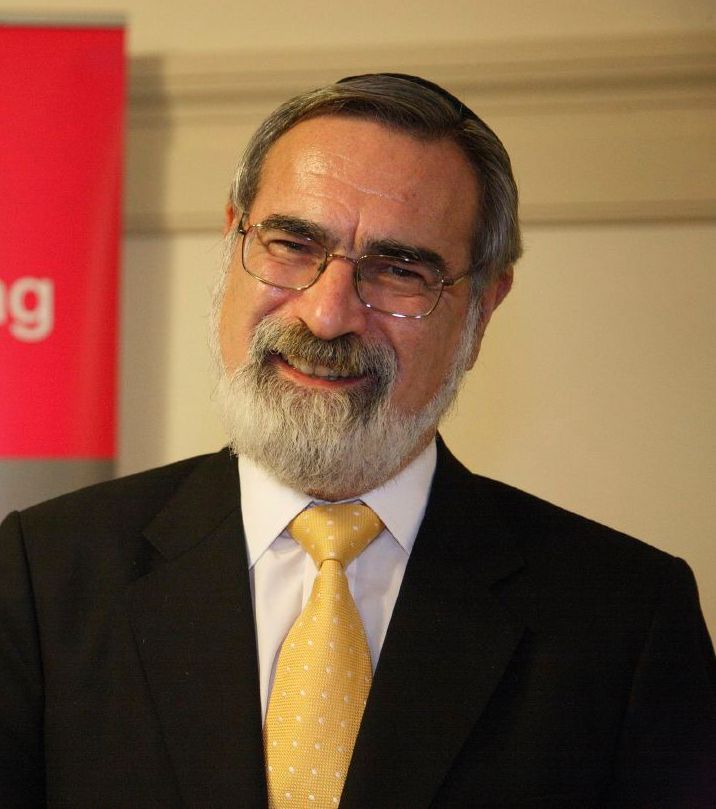 *Jonathan Sacks. ''Lessons in Leadership: A Weekly Reading of the Jewish Bible'', pages 251–55. New Milford, Connecticut: Maggid Books, 2015. .
*Jonathan Sacks. ''Essays on Ethics: A Weekly Reading of the Jewish Bible'', pages 287–91. New Milford, Connecticut: Maggid Books, 2016. .
*Shai Held. ''The Heart of Torah, Volume 2: Essays on the Weekly Torah Portion: Leviticus, Numbers, and Deuteronomy'', pages 220–29. Philadelphia: Jewish Publication Society, 2017. .
*Steven Levy and Sarah Levy. ''The JPS Rashi Discussion Torah Commentary'', pages 156–59. Philadelphia: Jewish Publication Society, 2017. .
*Pekka Pitkänen
*Jonathan Sacks. ''Lessons in Leadership: A Weekly Reading of the Jewish Bible'', pages 251–55. New Milford, Connecticut: Maggid Books, 2015. .
*Jonathan Sacks. ''Essays on Ethics: A Weekly Reading of the Jewish Bible'', pages 287–91. New Milford, Connecticut: Maggid Books, 2016. .
*Shai Held. ''The Heart of Torah, Volume 2: Essays on the Weekly Torah Portion: Leviticus, Numbers, and Deuteronomy'', pages 220–29. Philadelphia: Jewish Publication Society, 2017. .
*Steven Levy and Sarah Levy. ''The JPS Rashi Discussion Torah Commentary'', pages 156–59. Philadelphia: Jewish Publication Society, 2017. .
*Pekka Pitkänen“Ancient Israelite Population Economy: Ger, Toshav, Nakhri and Karat as Settler Colonial Categories.”
''Journal for the Study of the Old Testament'', volume 42, number 2 (December 2017): pages 139–53. *Ernst Wendland.
Deuteronomy: translationNotes
'' Orlando, Florida: unfoldingWord, 2017. *Pallant Ramsundar
“Biblical Mistranslations to 'Euphrates' and the Impact on the Borders of Israel.”
''American Journal of Biblical Theology'' (2019). *Jonathan Sacks. ''Covenant & Conversation: A Weekly Reading of the Jewish Bible: Deuteronomy: Renewal of the Sinai Covenant'', pages 85–115. New Milford, Connecticut: Maggid Books, 2019. *Andrew Tobolowsky
"The Problem of Reubenite Primacy: New Paradigms, New Answers."
''Journal of Biblical Literature'', volume 139, number 1 (2020): pages 27–45.
External links
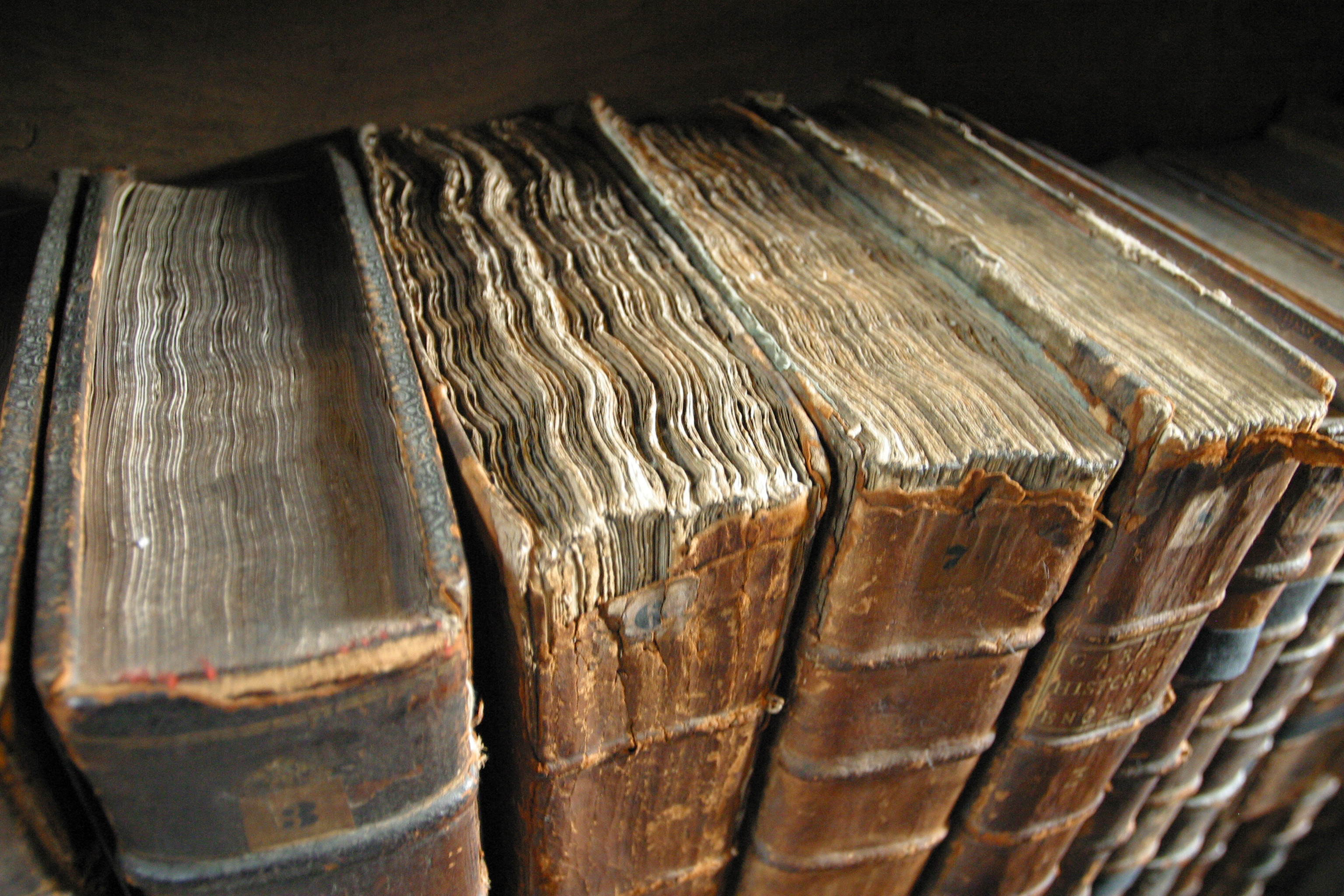
Texts
Masoretic text and 1917 JPS translation
Commentaries
Academy for Jewish Religion, New York
Rabbi Dov Linzer
Reconstructionist Judaism
{{Weekly Torah Portions Weekly Torah readings in Av Weekly Torah readings from Deuteronomy